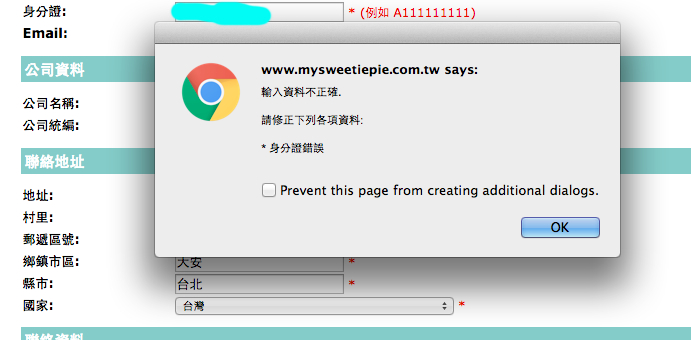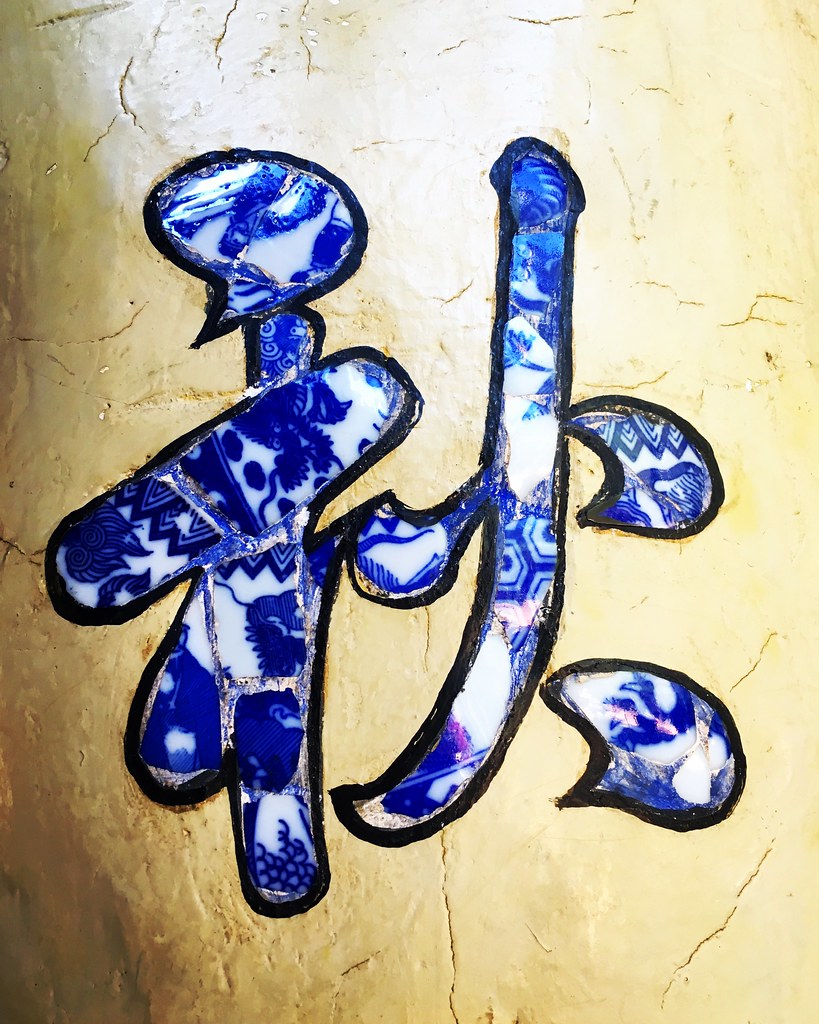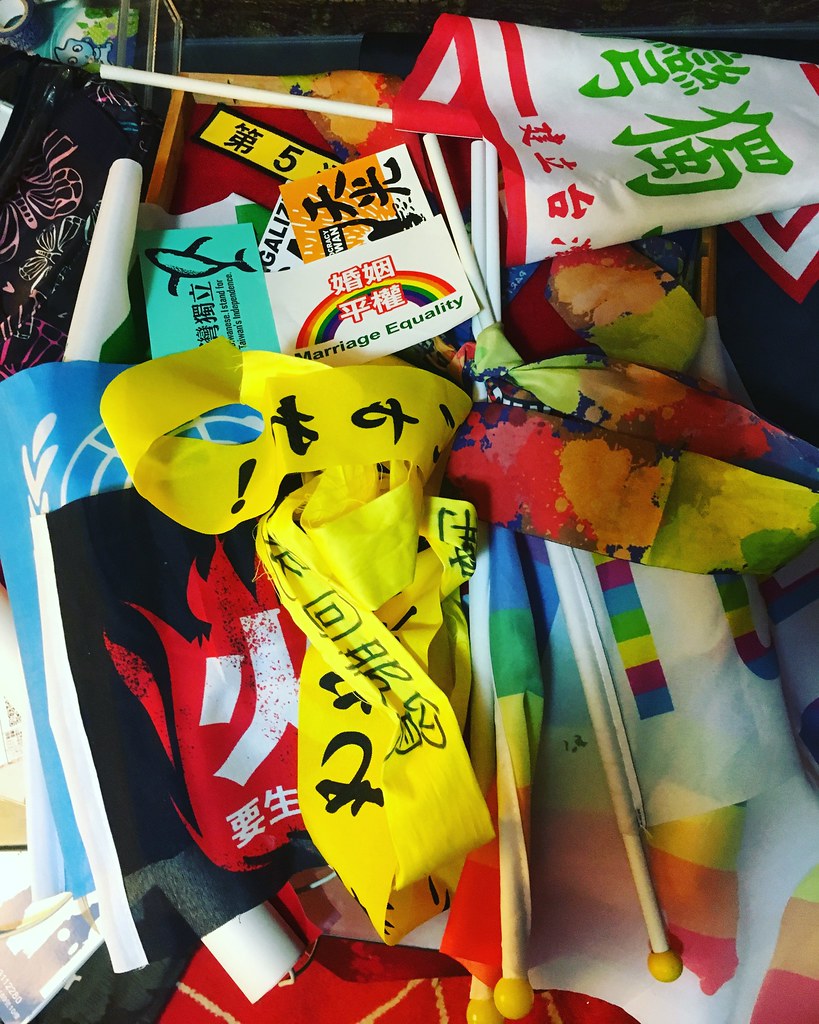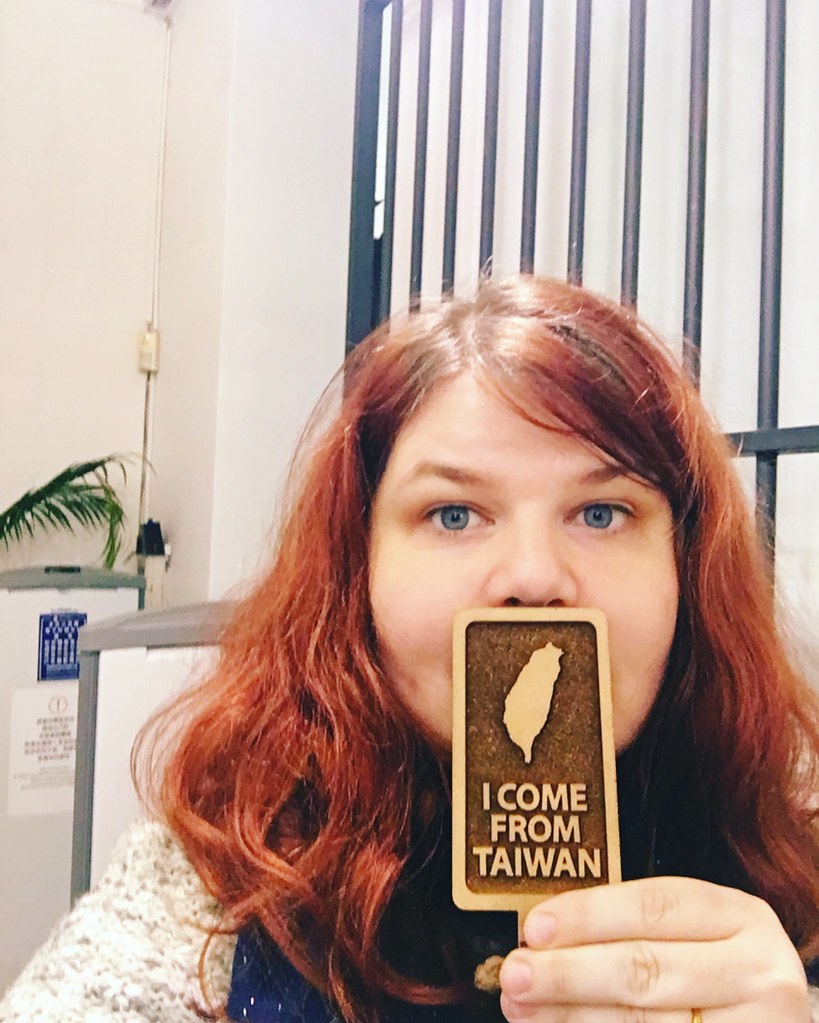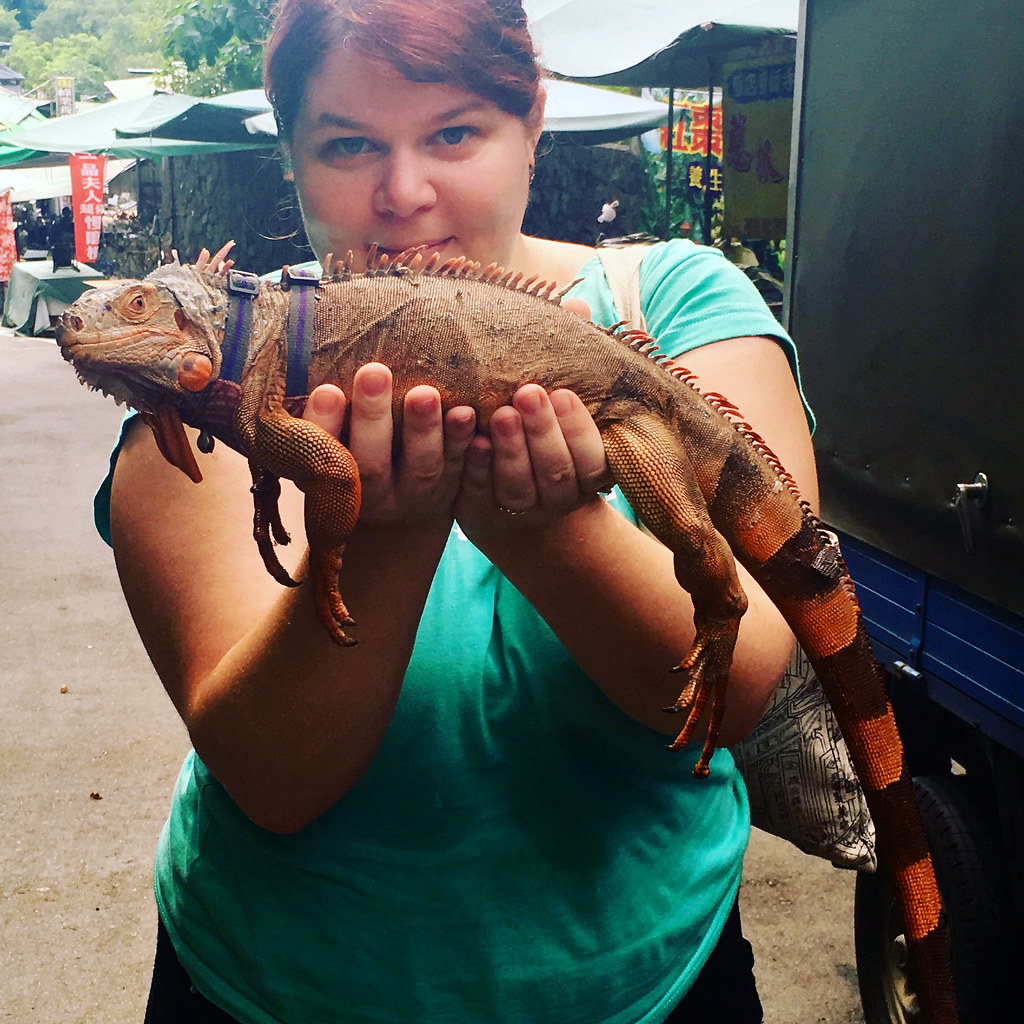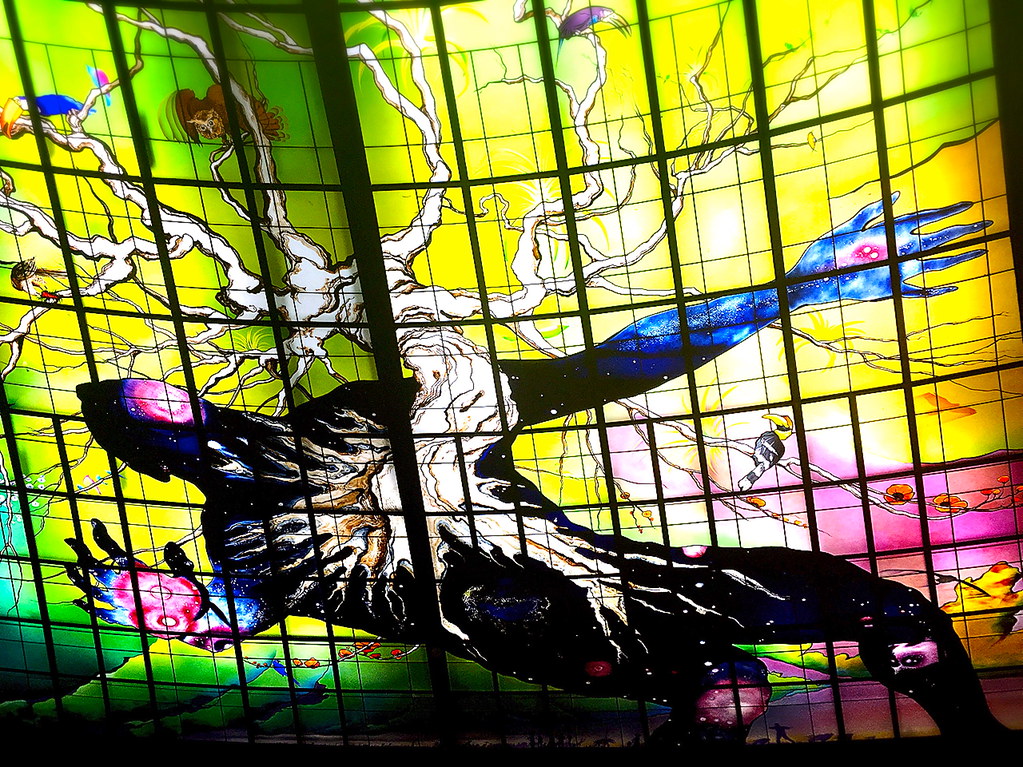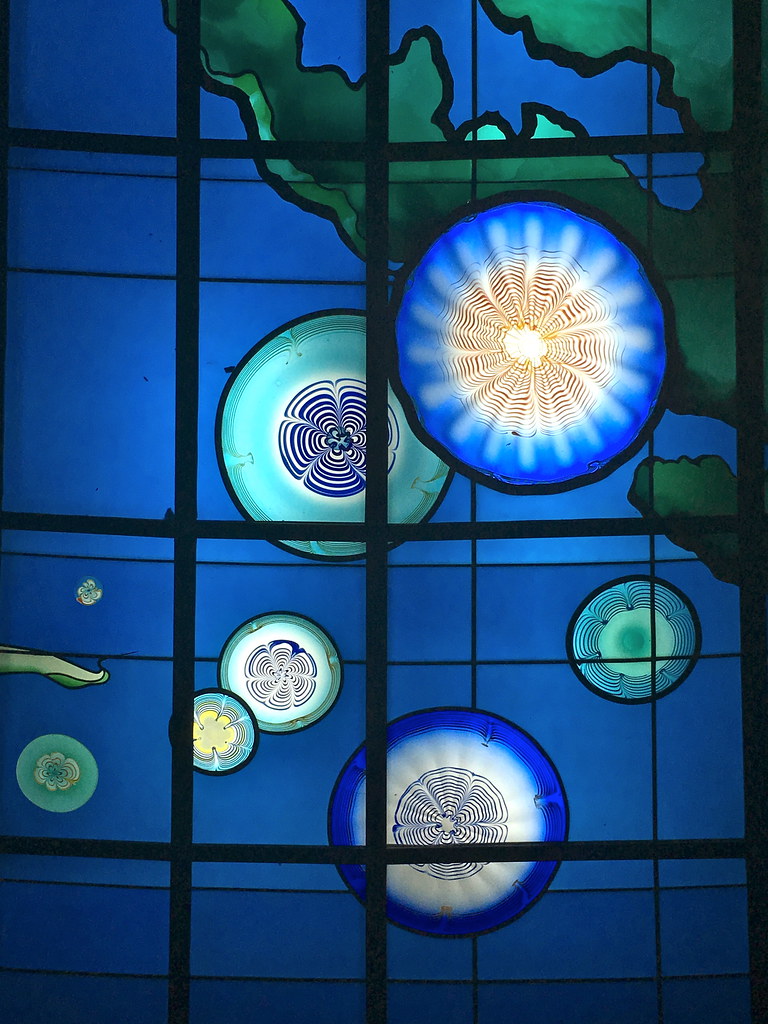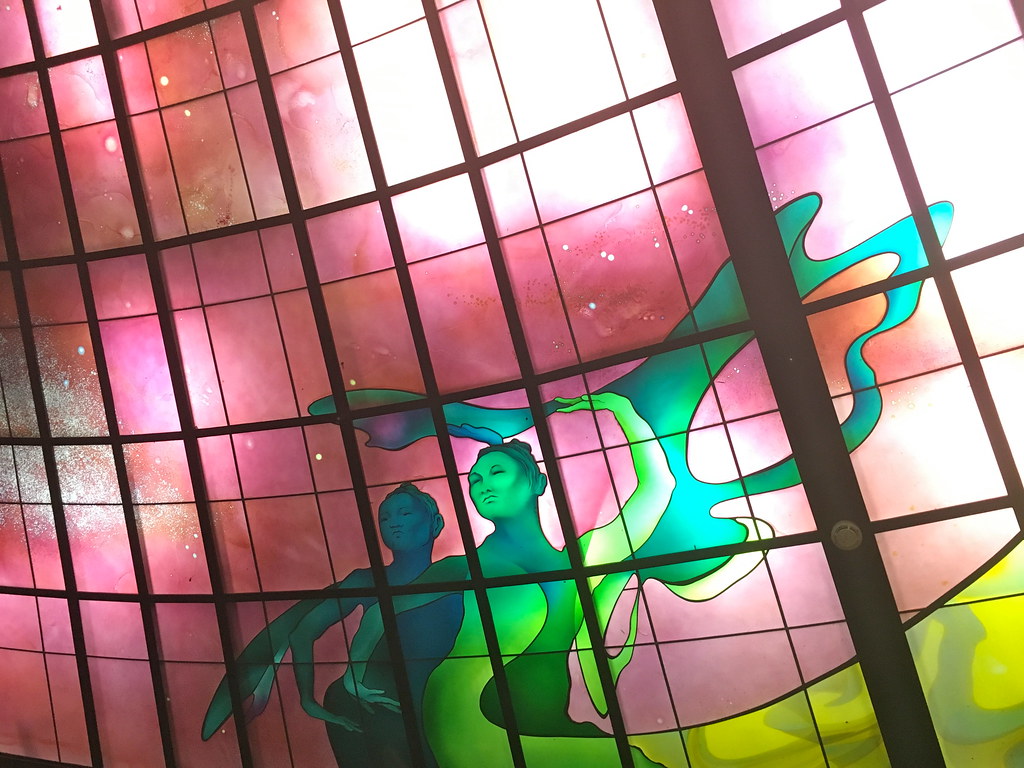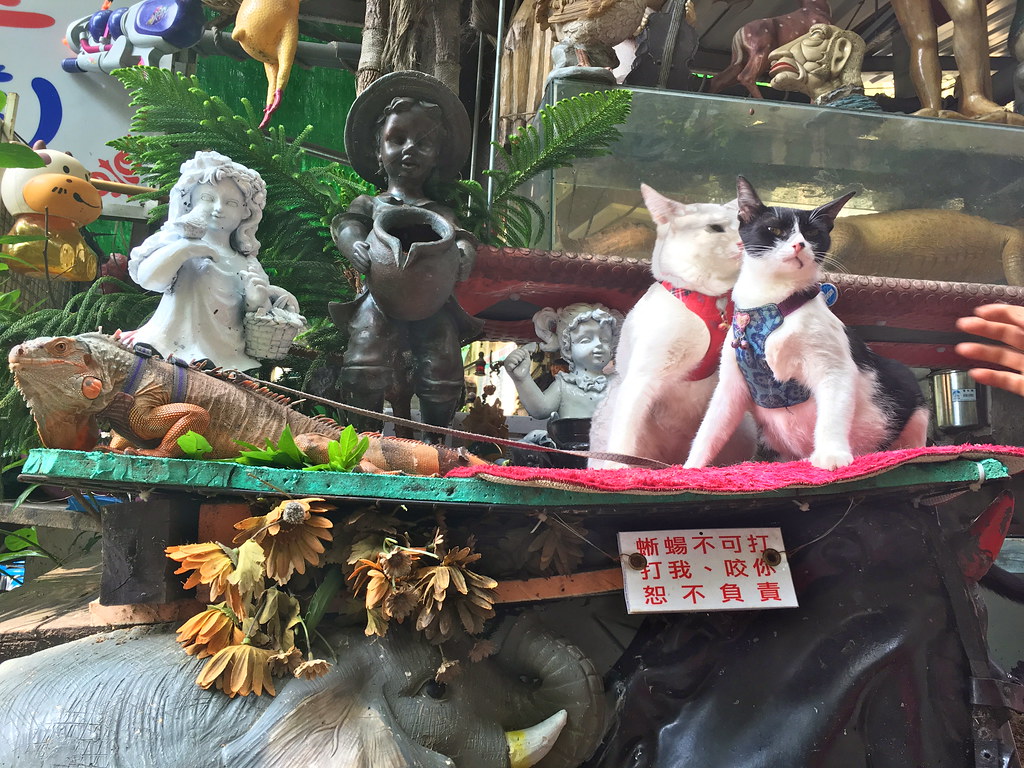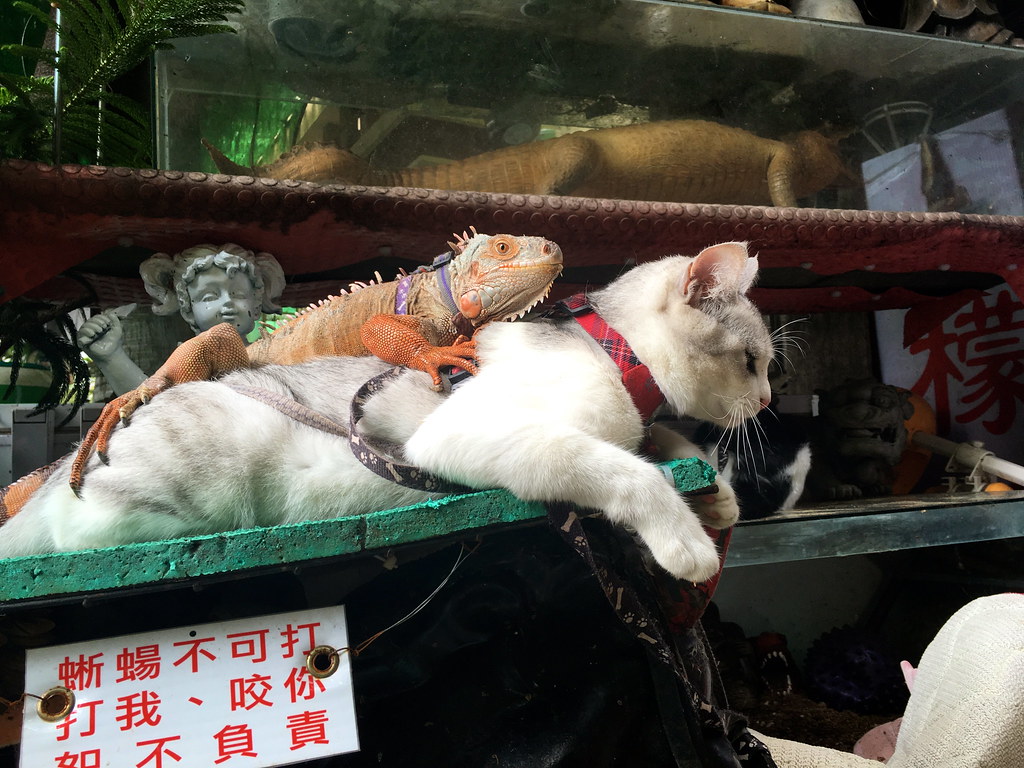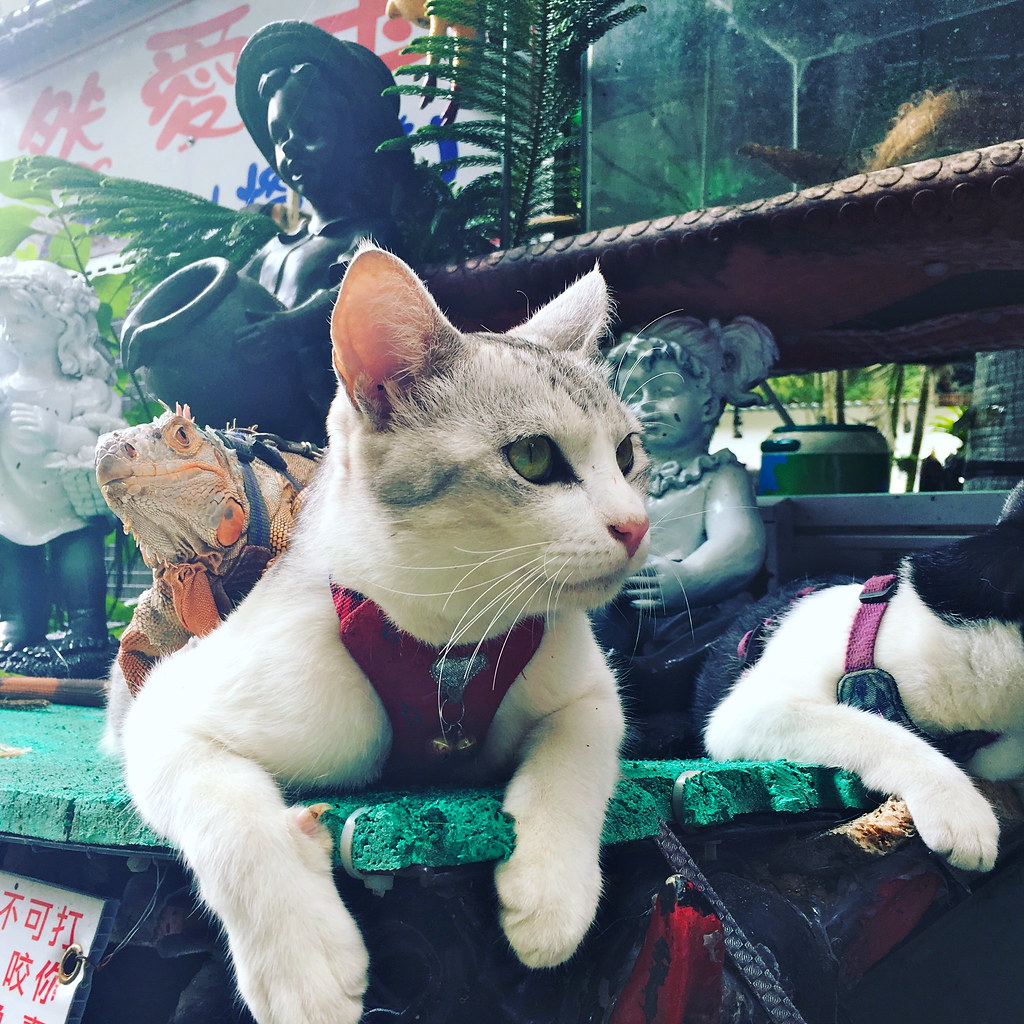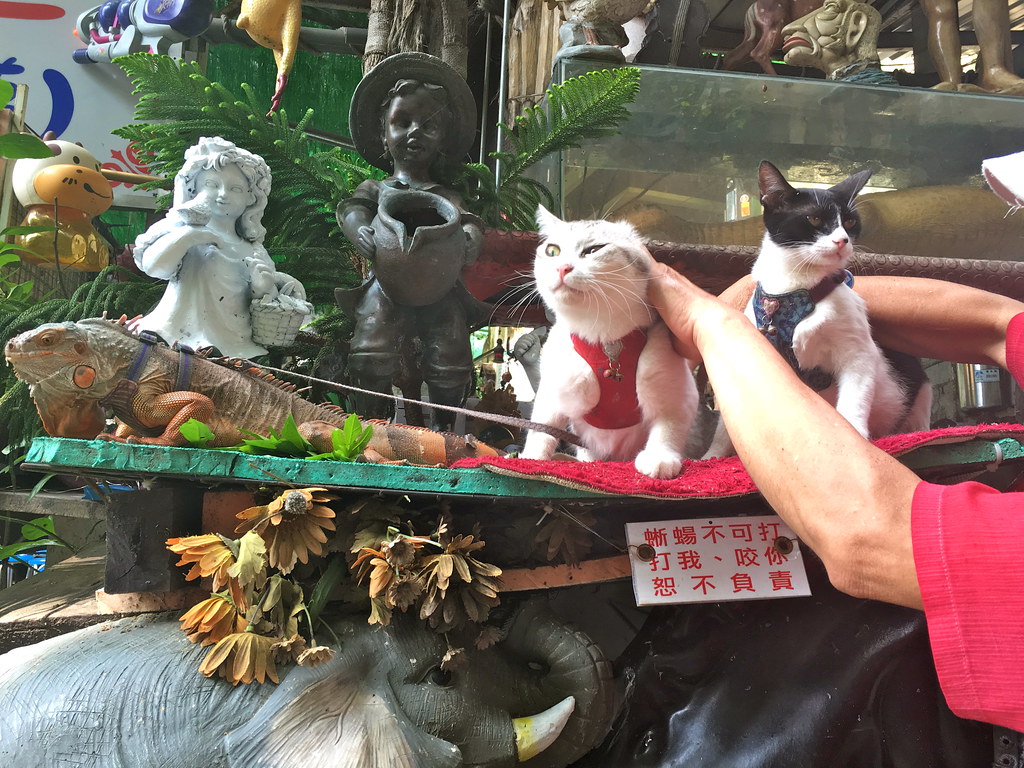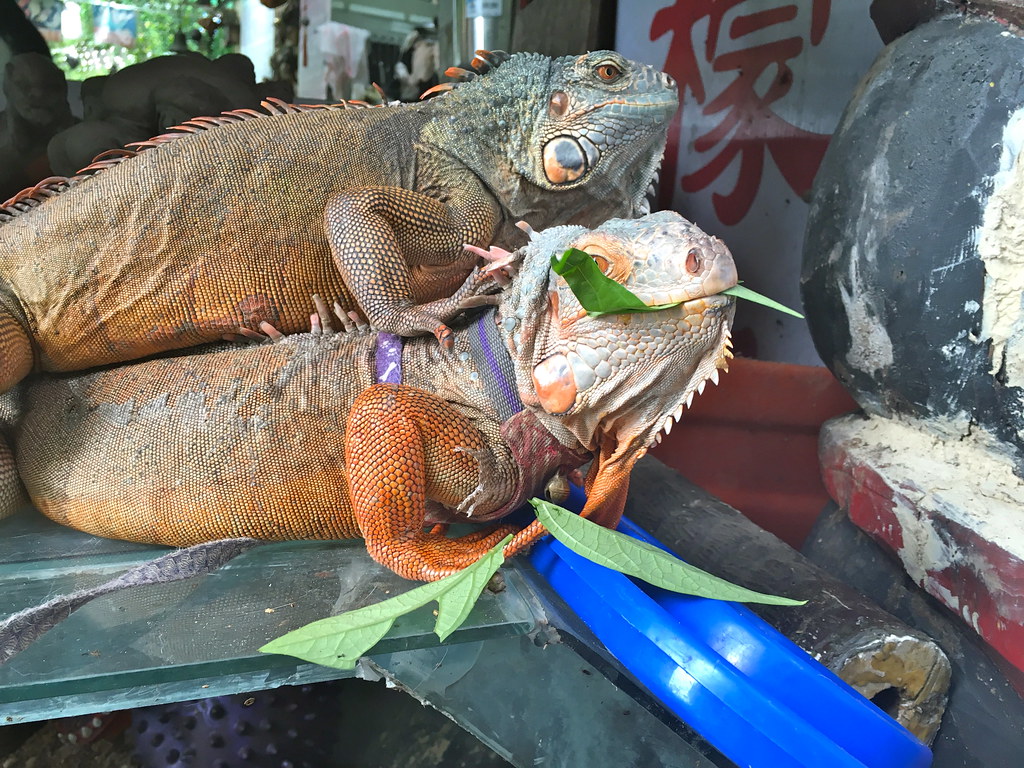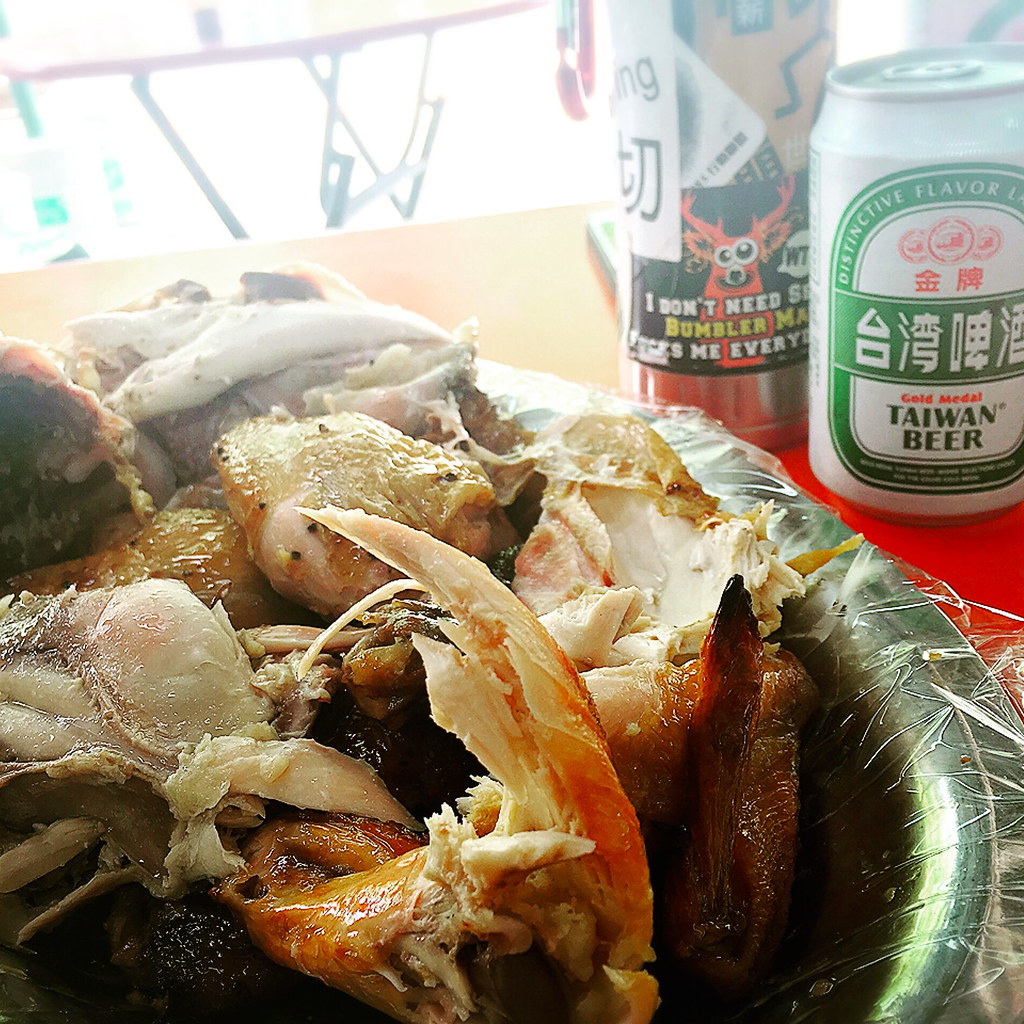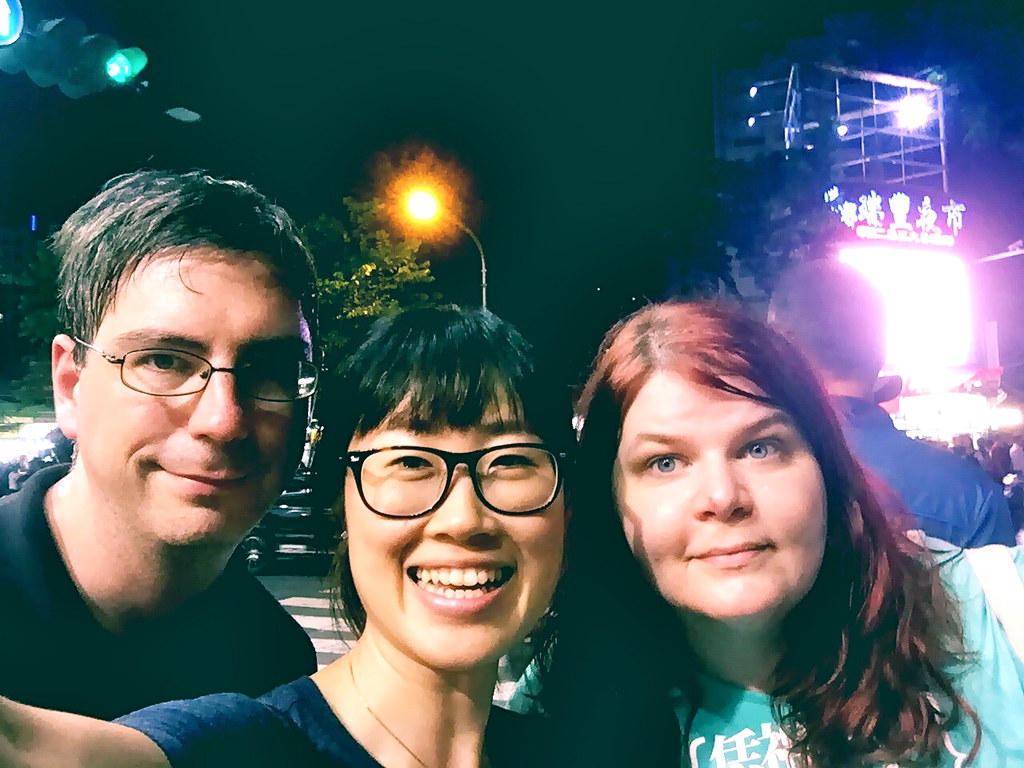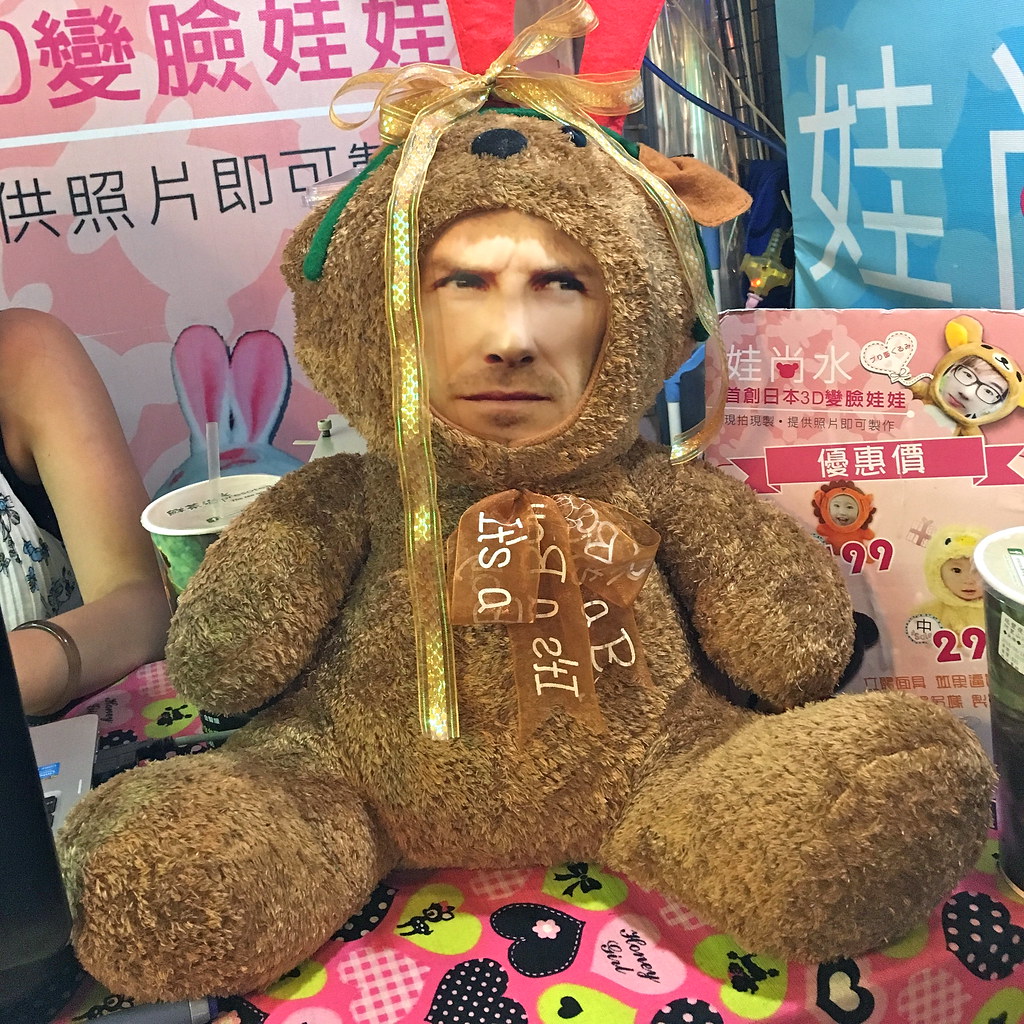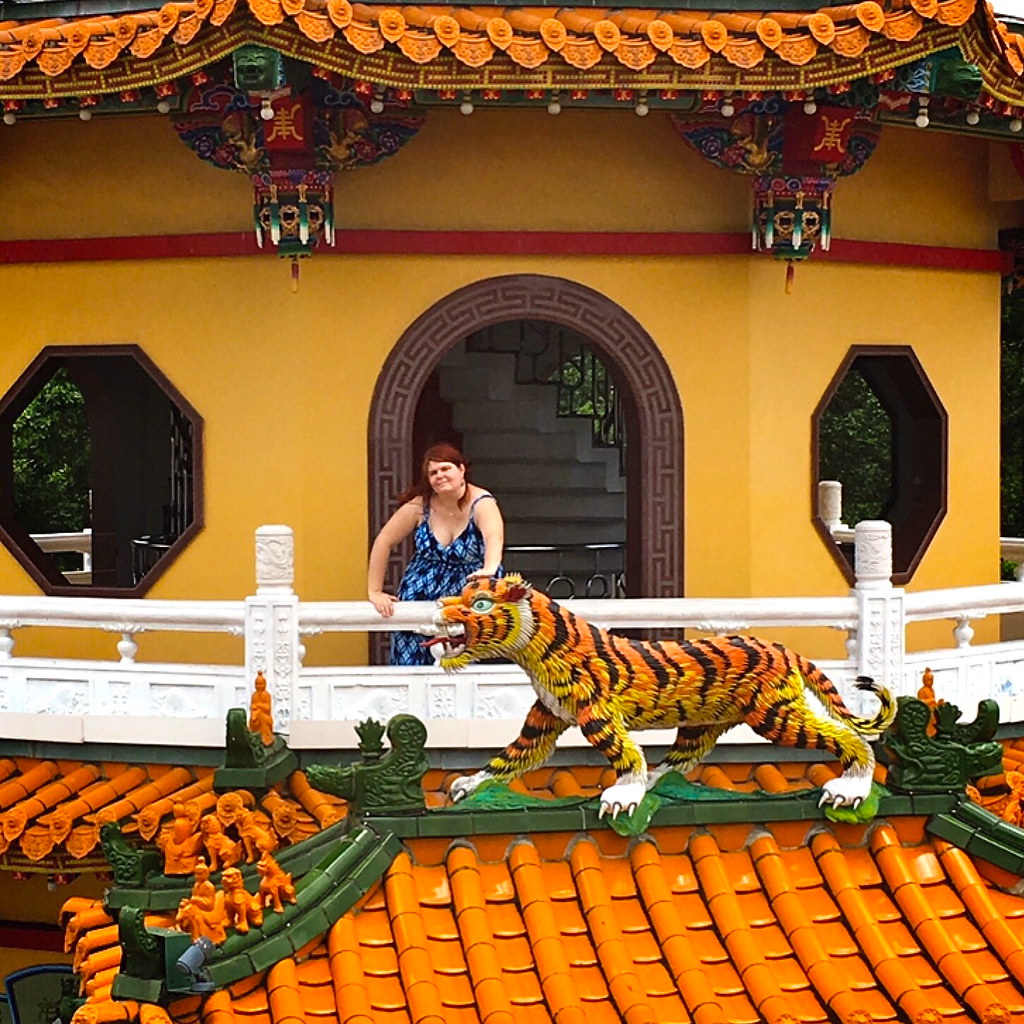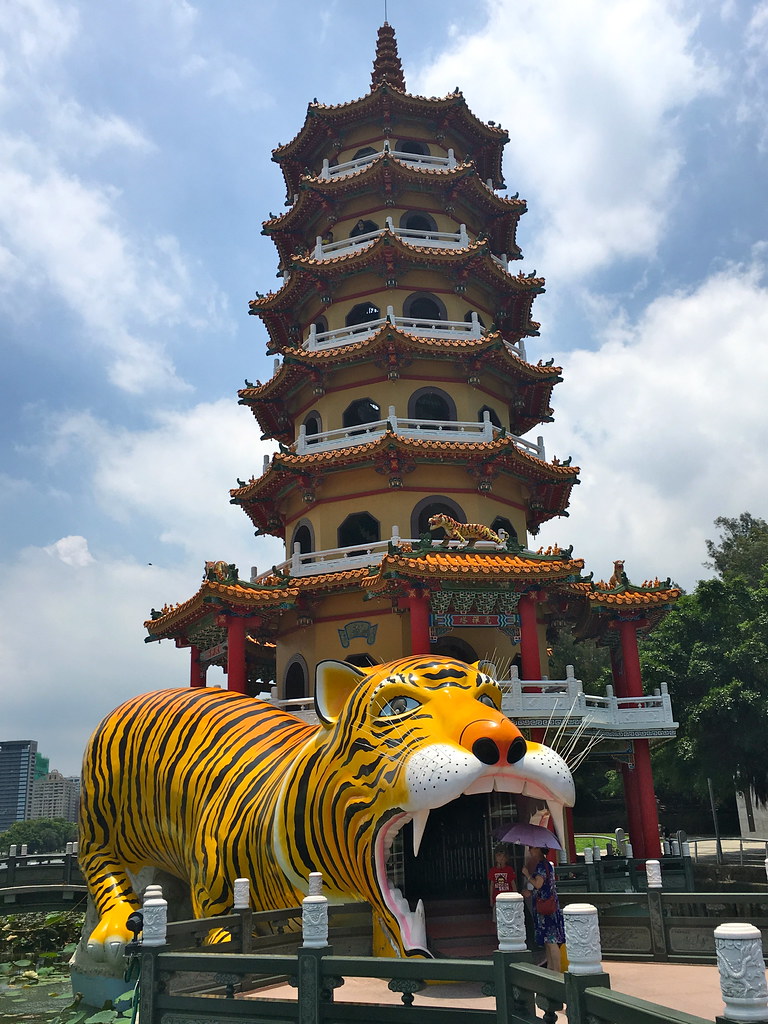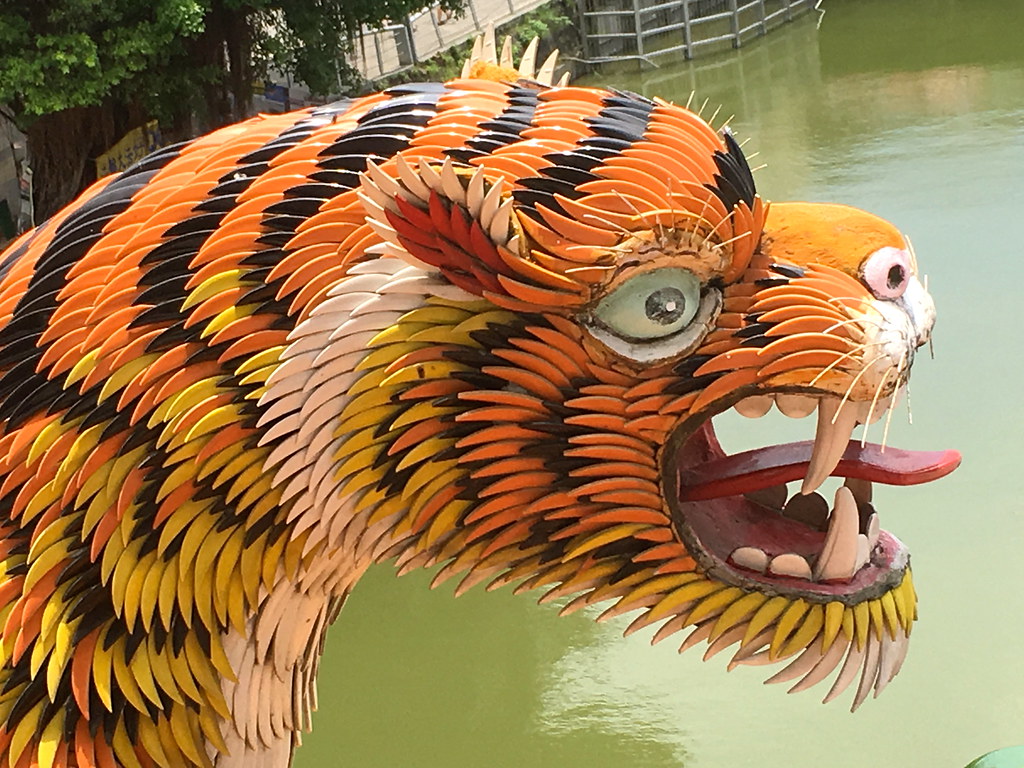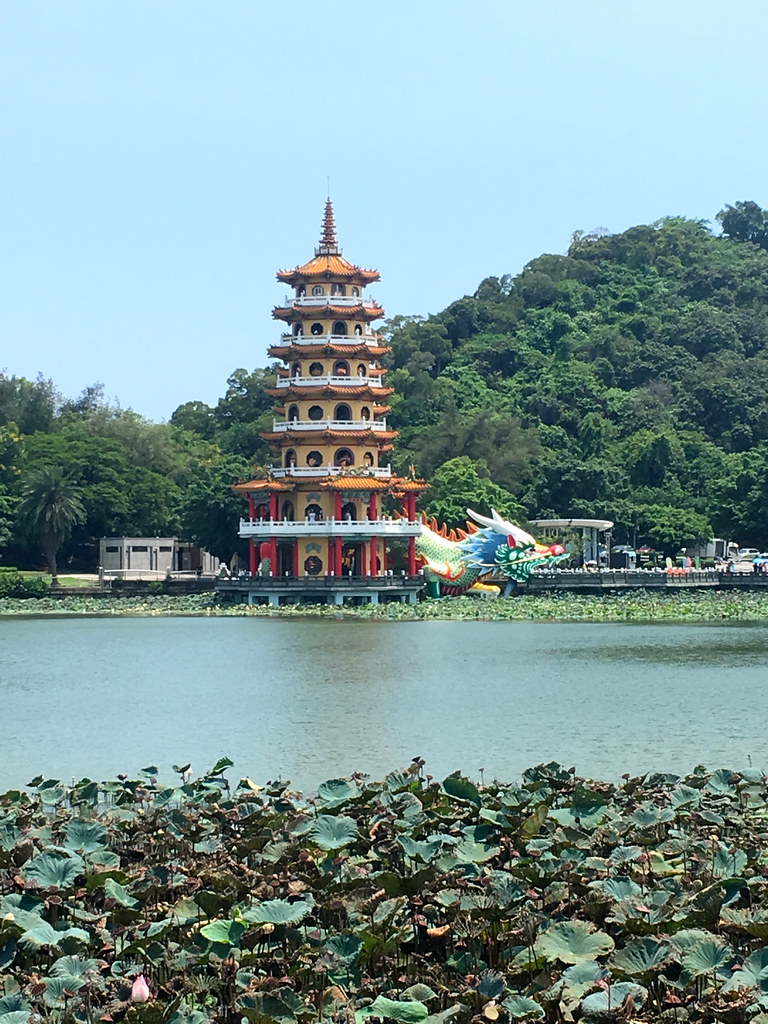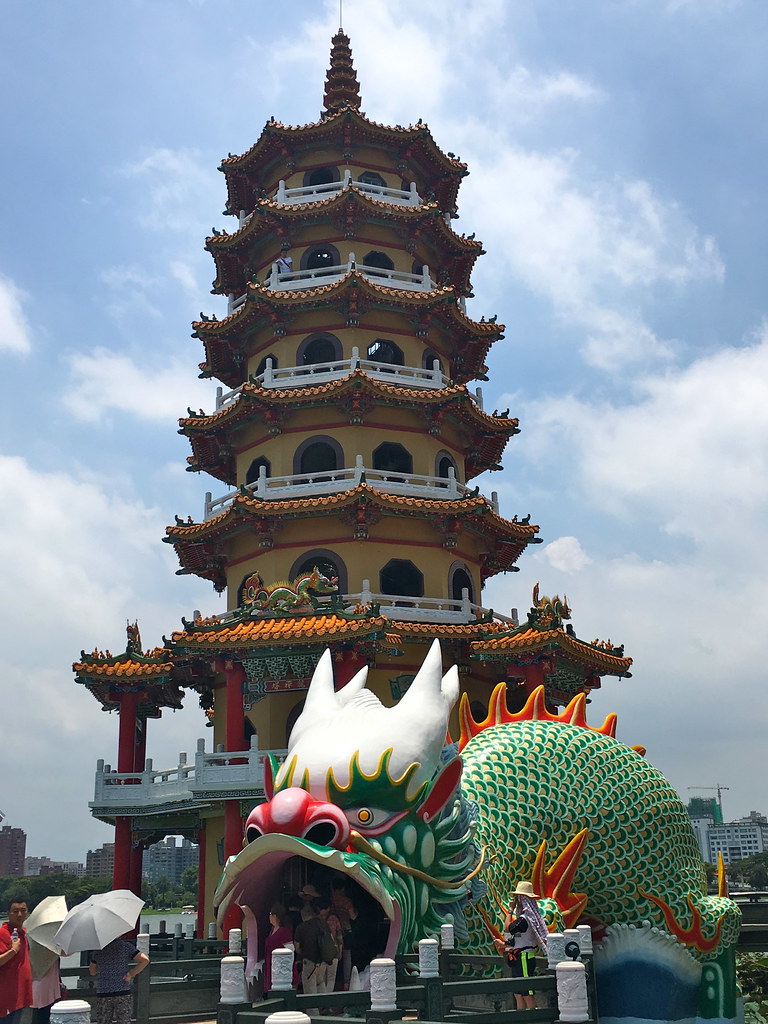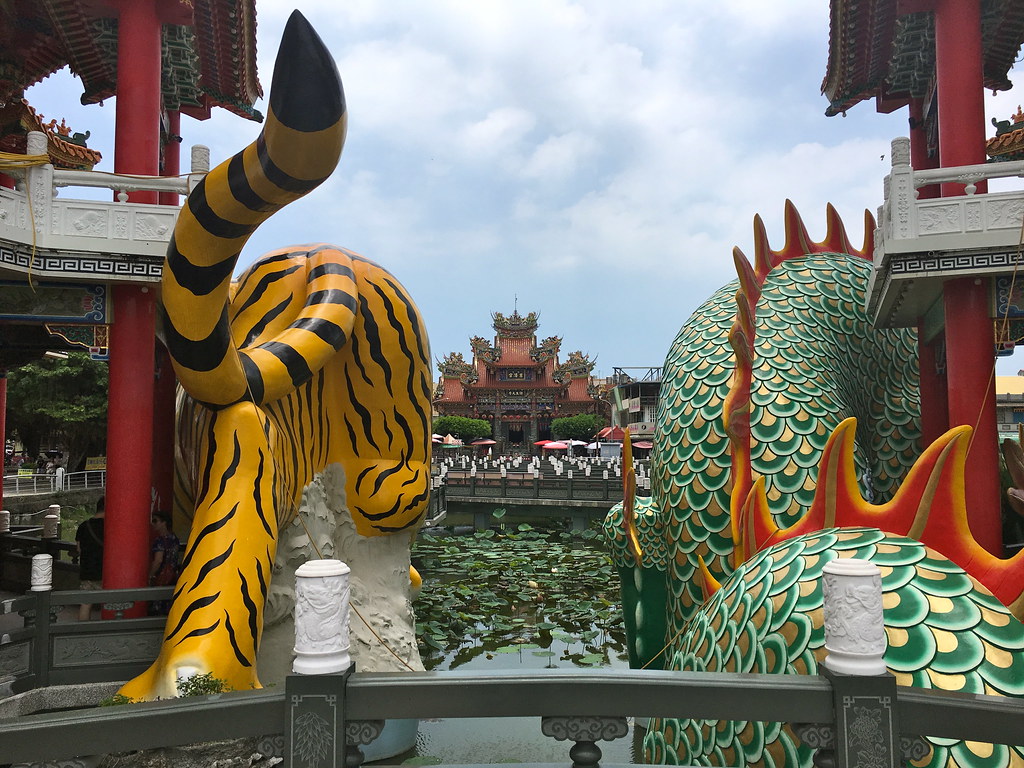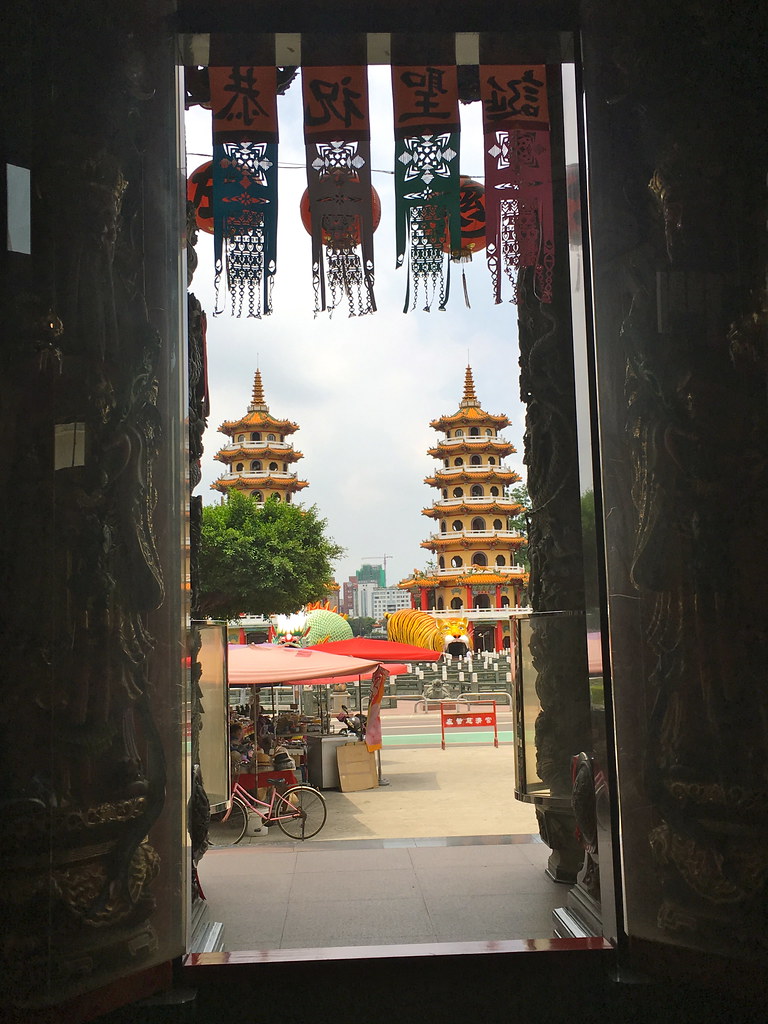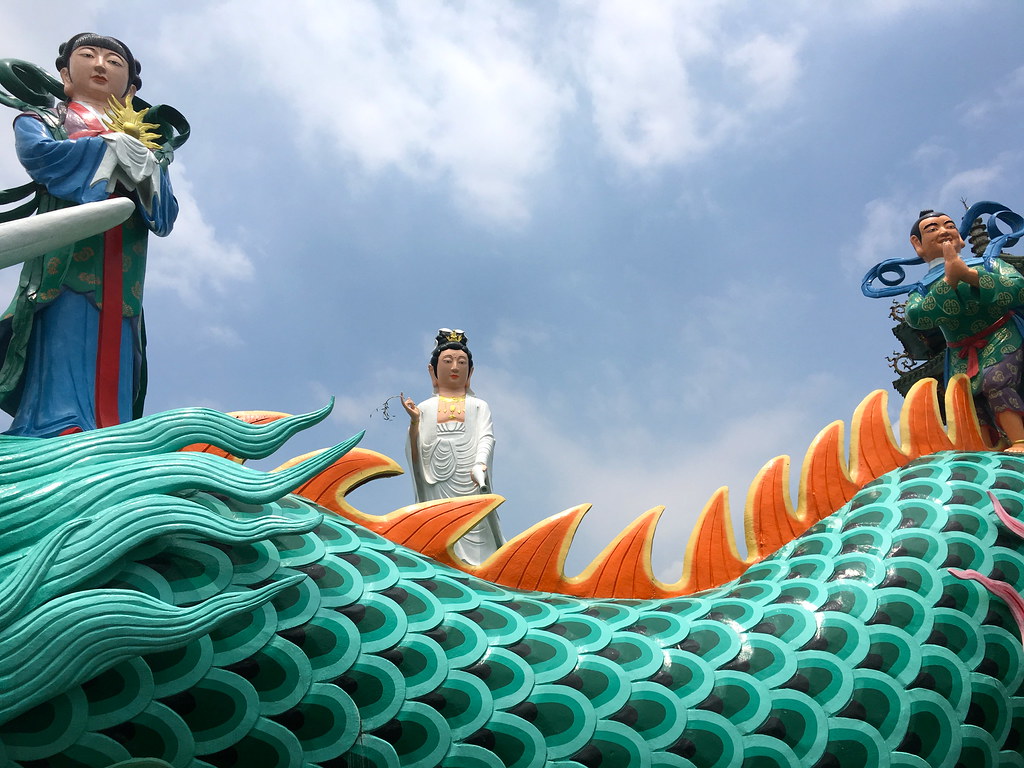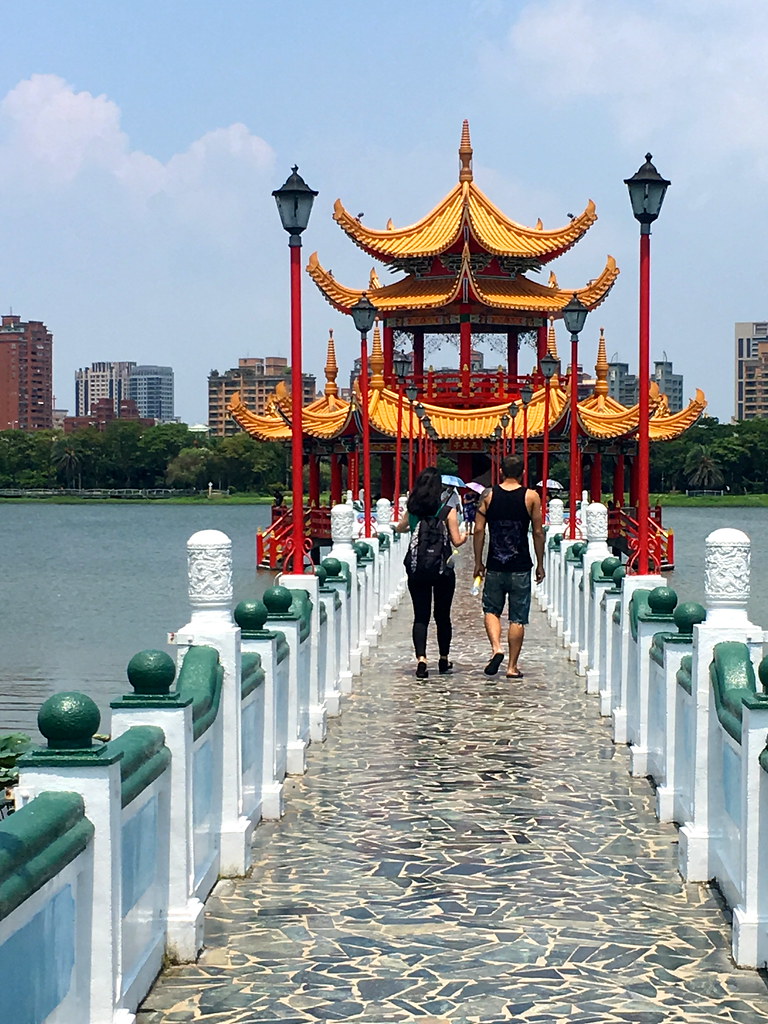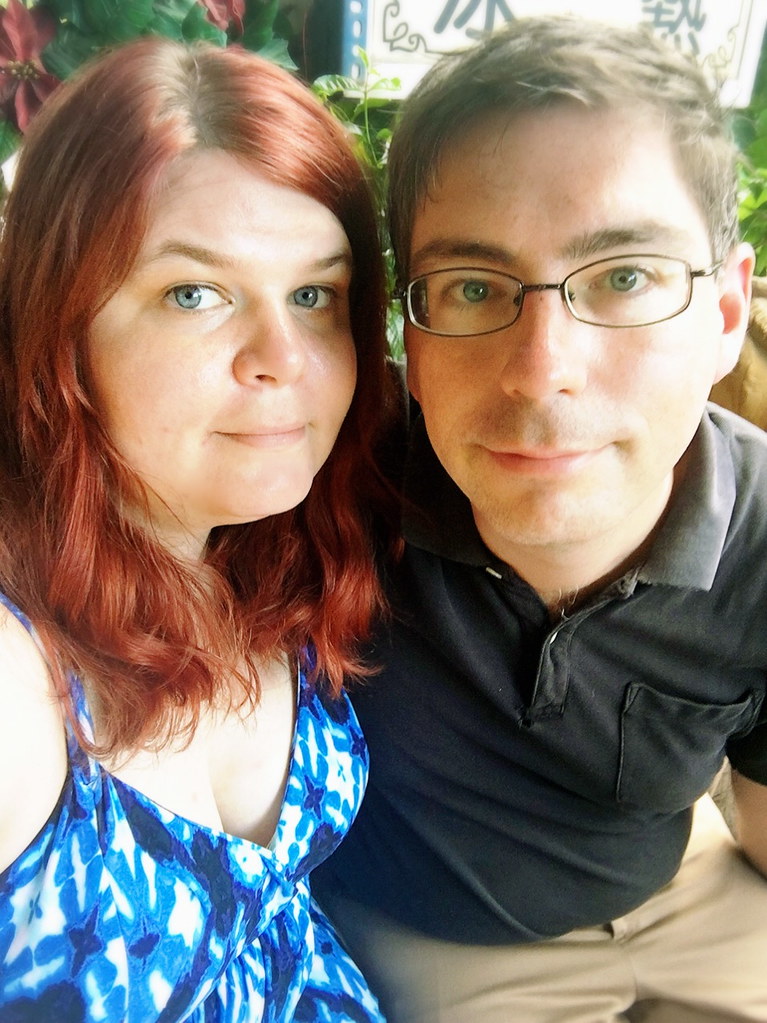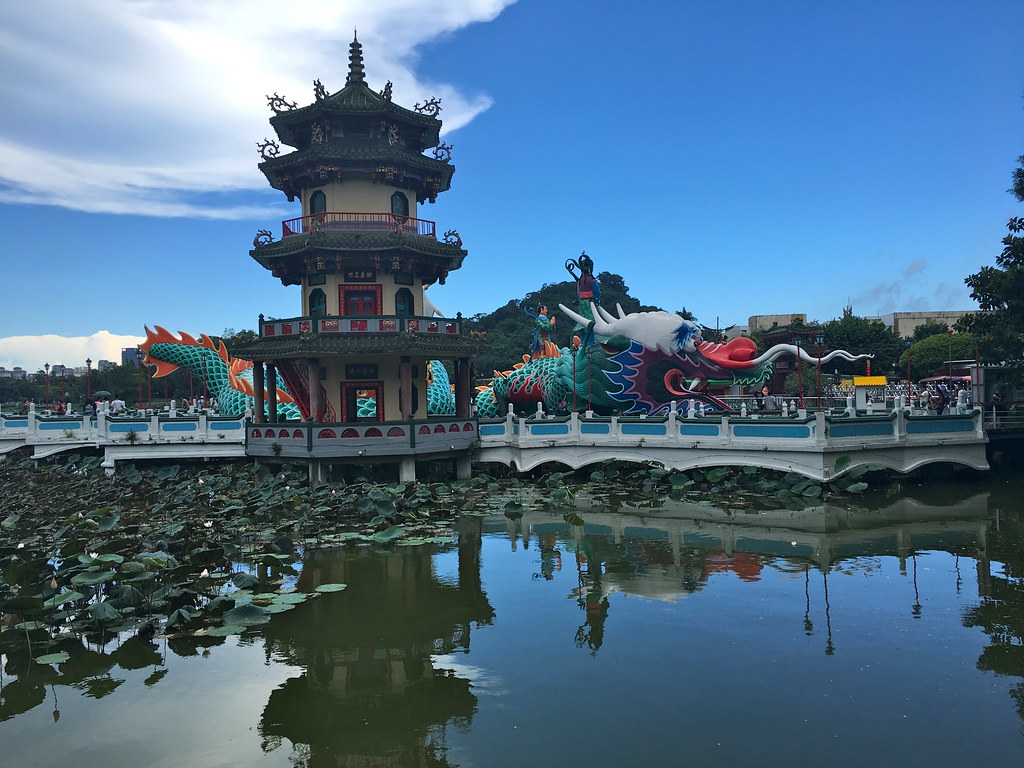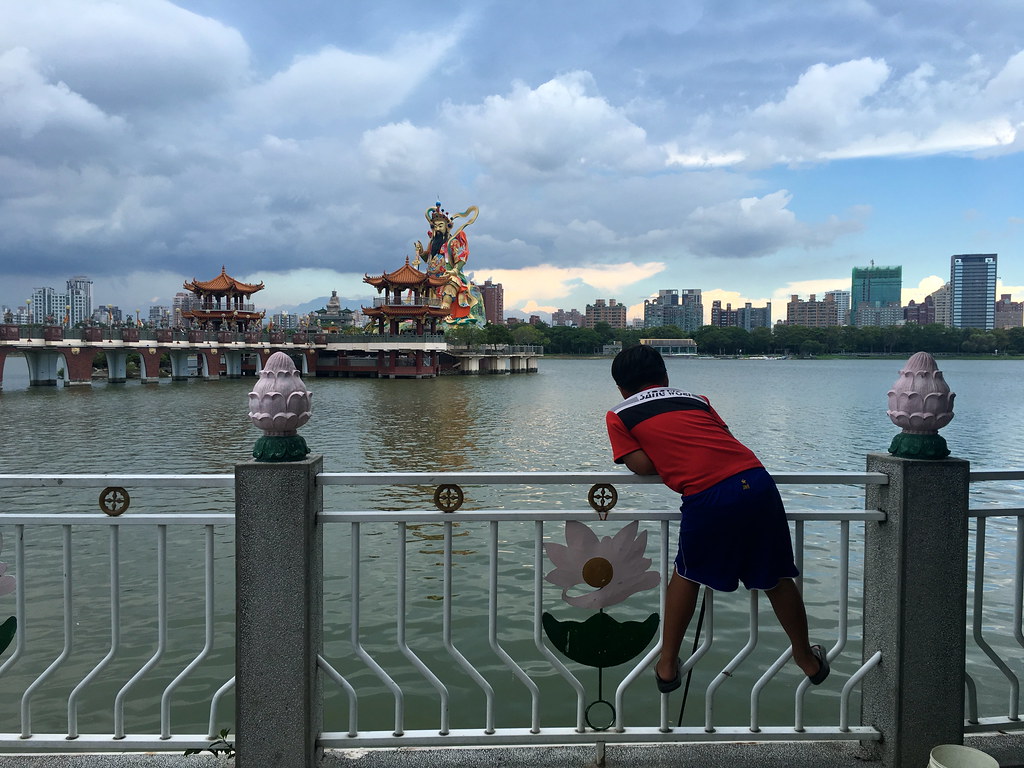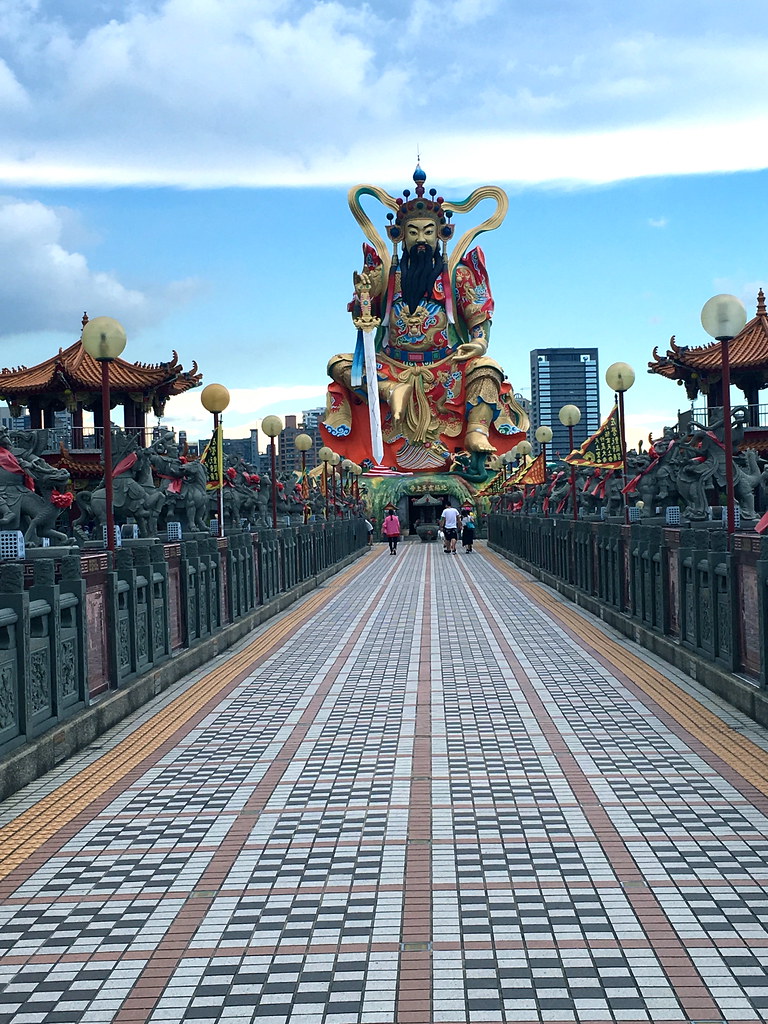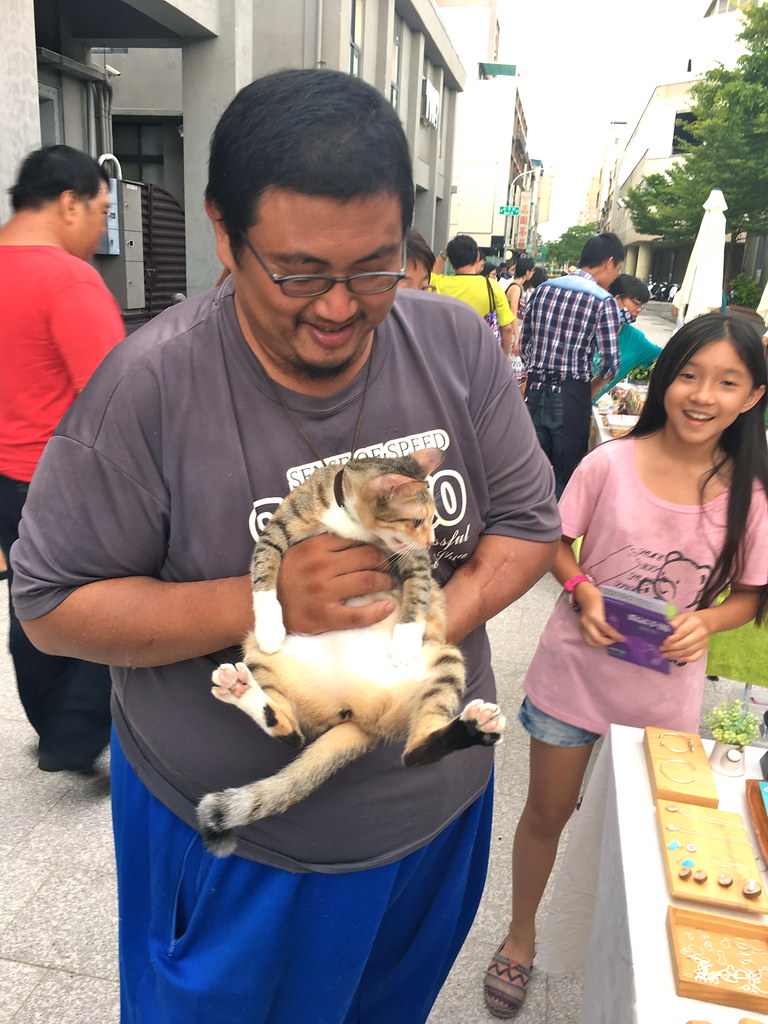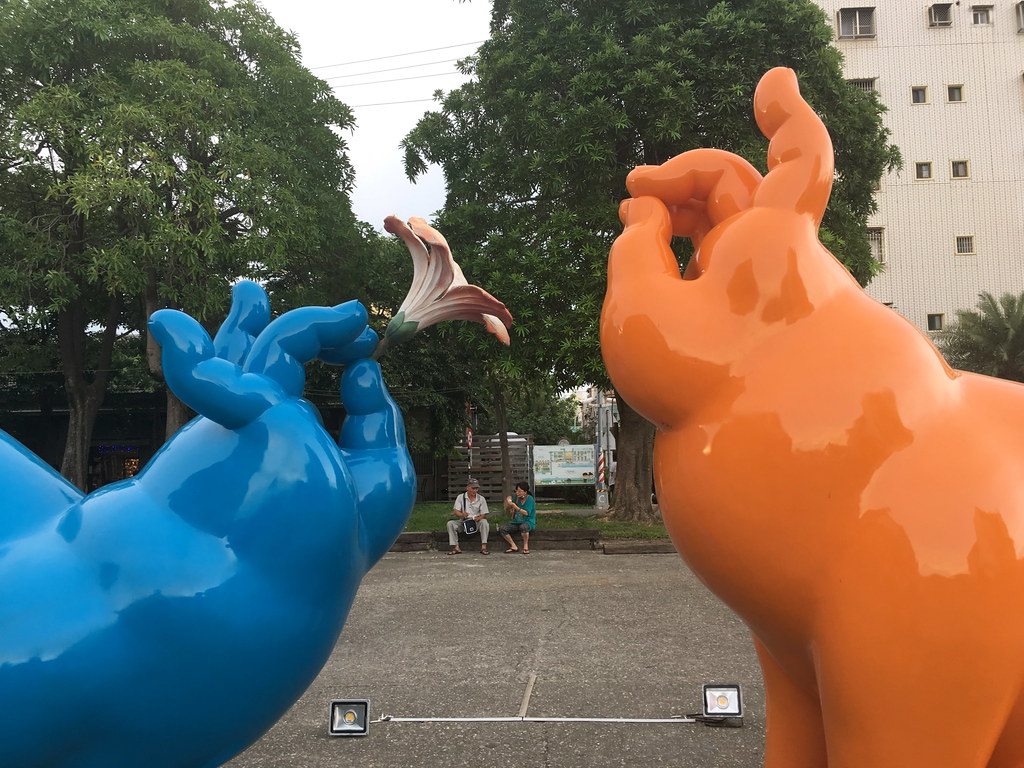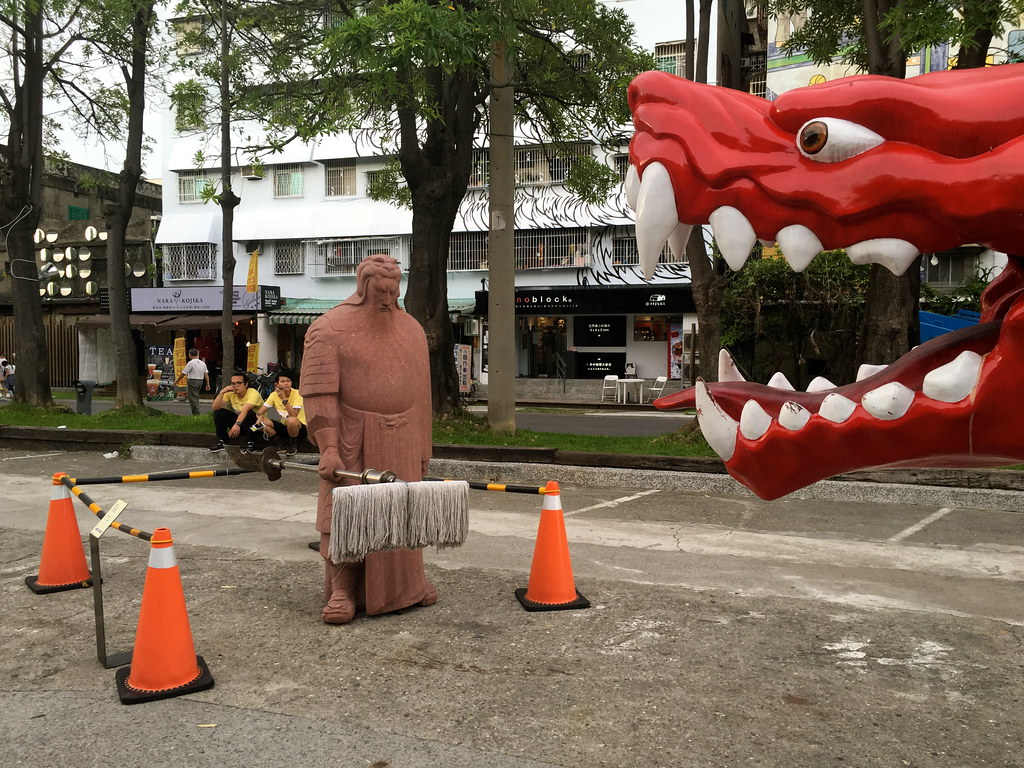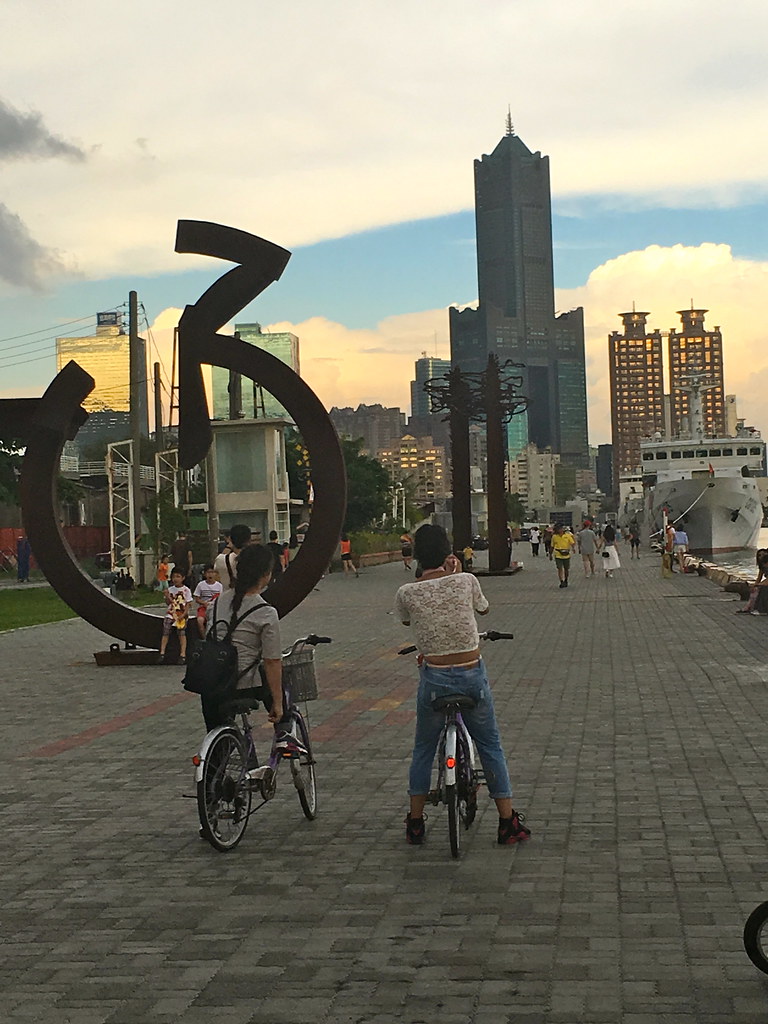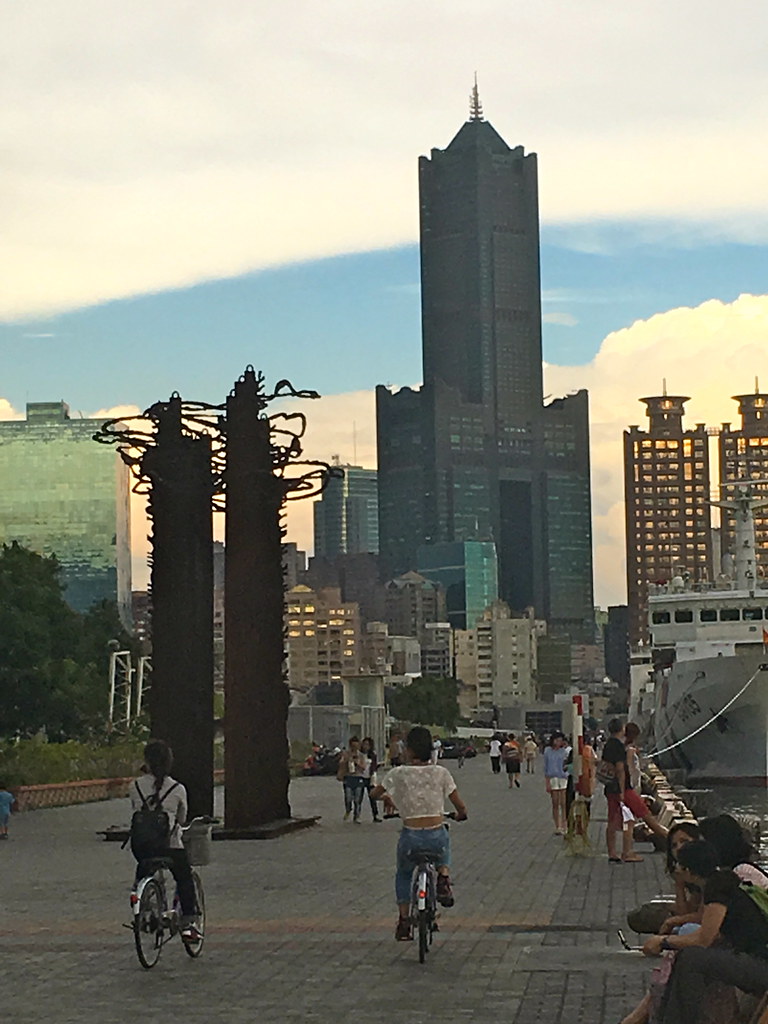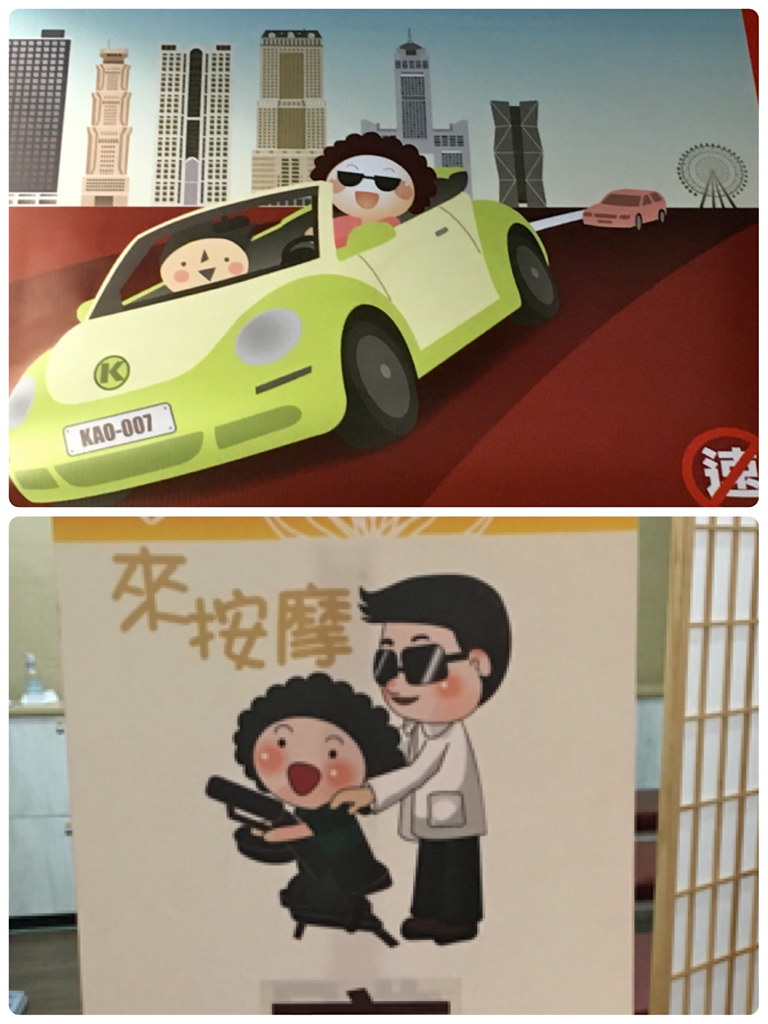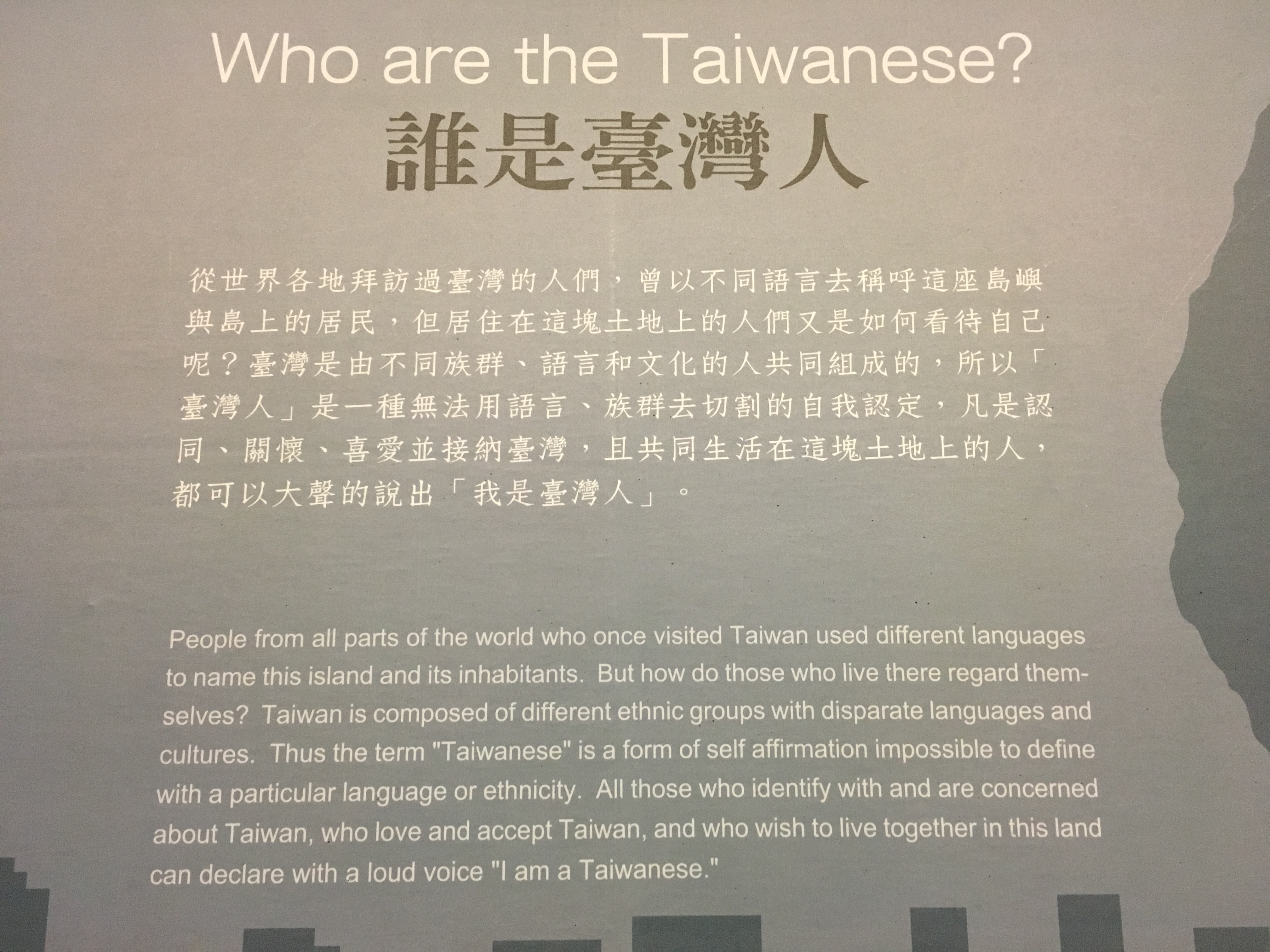 |
| Sign at the National Museum of History in Tainan. So I can't be a citizen because...? |
Since writing my last post on the not-great new regulations on dual nationality for foreigners in Taiwan, I've engaged in quite a few discussions of the matter. I've been asked quite a few questions on why I want to be a citizen, why permanent residency is not enough, how I can still support the "Hoklo nationalists" who don't want foreigners in their country (which - huh? In 2017 you think that, really?), and why I can't give up my US citizenship.
So, I thought I'd offer some answers.
I've also noticed that much of the narrative on those seeking to naturalize in Taiwan comes from those married to locals, giving them family ties here, or who have children here (whether the children have a Taiwanese parent or not), or grown children who were born here. I have sympathy for all such people and support their fight, but some may be wondering why a foreigner, married to another foreigner with no children born here, would want to naturalize. Seems odd, doesn't it? But here I am.
Below are a few of the things I've heard on this matter (some condensed or re-written for clarity) followed by an explanation of why I, and many foreigners, feel the way we do about dual nationality in Taiwan. This is in part deeply personal but also, I think, speaks to the experiences and issues of many who call Taiwan home, and I hope lays bare some central issues that might not be otherwise considered.
So, I thought I'd offer some answers.
I've also noticed that much of the narrative on those seeking to naturalize in Taiwan comes from those married to locals, giving them family ties here, or who have children here (whether the children have a Taiwanese parent or not), or grown children who were born here. I have sympathy for all such people and support their fight, but some may be wondering why a foreigner, married to another foreigner with no children born here, would want to naturalize. Seems odd, doesn't it? But here I am.
Below are a few of the things I've heard on this matter (some condensed or re-written for clarity) followed by an explanation of why I, and many foreigners, feel the way we do about dual nationality in Taiwan. This is in part deeply personal but also, I think, speaks to the experiences and issues of many who call Taiwan home, and I hope lays bare some central issues that might not be otherwise considered.
First, and quickly, Taiwanese do not have to give up their citizenship to obtain nationality elsewhere if the second country doesn't require it, and most nations that Taiwanese seek dual citizenship from don't. It's an unfair and ridiculous double standard pure and simple - some countries only allow you to have their own citizenship and no other, others allow multiple, but none that I know of has a similar double standard for born vs. naturalized citizens.
Consider as well people with foreign citizenship who are of Taiwanese heritage, who seek, and obtain, Taiwanese citizenship without giving up their original passport.
Are they not "loyal" to Taiwan? Do they have good reasons for not giving up their Taiwanese citizenship? What do you think those reasons are? For Taiwanese who live abroad permanently or were born abroad, it probably has to do with family ties and potentially needing to return to one's country of birth for related reasons.
Well, those are my reasons too, and other foreigners here share similar stories. As I wrote in this op-ed, I have family in the US and they are aging. Most notably, my father, especially after my mother's passing, may well need my care or help at some point in the future. When my mother passed, I spent nearly half a year in the US setting everything in order and taking care of my dad when he needed me most. I needed to do that; I do not know exactly how my family might have imploded if I hadn't, but it might well have done. I am not rich and wasn't sure how long I'd be away - although my husband could send me some money, I needed to work while I was there, he was in charge of maintaining our life materially and financially while I was away and while we do well enough, we aren't rolling in money. In fact, I left before my mother's death and, had she not passed soon after my arrival, I might have been in the US for a year or more. Just a few months later, I needed to return for several weeks to take care of my father after quintuple bypass surgery. The next time I'm needed, who knows how long I'll need to go and whether I'll need to work to make ends meet.
If I gave up my American citizenship, I would not be able to care for my family in the US in ways that might be necessary, perhaps on very short notice. I would not be able to stay for indefinite periods nor be able to work. In Trump's America, I'm not sure a former citizen who renounced their US nationality would be so easily allowed in, even though Taiwanese have visa-free entry, though I hope this is will cease to be a valid concern in short order. In any case, it is simply not a viable option while I have family members who may eventually need me, either for long-term issues or emergency care, to give up my American citizenship. If I were wealthy, perhaps, but I'm not. I actually need those work and residency rights, as was evidenced just a few short years ago.
A second reason, though one I like to dwell on less and place less importance on, is that even if I naturalize, I will never be considered fully Taiwanese, which I explore considering more local issues below. From an international perspective, however, there is a double standard most people don't think about: the possibility of Chinese invasion and what will happen to naturalized Taiwanese citizens if it happens. I don't necessarily think it will, but the possibility cannot be dismissed.
When China took over Hong Kong, it did not give citizenship to Hong Kongers not of Chinese descent (some later applied, but it is not clear how often such applications are accepted. In any case, considering how many non-Chinese native people there are in territories ruled by China - namely Inner Mongolia, Tibet and Xinjiang though others exist - I find it hilarious and ironic that China would insist on being of "Chinese descent" to be a Chinese citizen, because what the hell does that even mean?) In any case, non-"Chinese" Hong Kongers who had other citizenships kept them, and were given permanent residence in Hong Kong. Not all non-"Chinese" in Hong Kong, however, had a foreign citizenship. They became British National Overseas citizens (this sounds weird, but it is a class of nationality). Those who did not apply would have been rendered stateless.
If China invades Taiwan and wins, Taiwanese citizens will end up being Chinese citizens. The vast majority do not want this, of course, but it would at the very least mean not being stateless. That's a low bar to pass, but I would not even pass that. Which nation would give me nationality if I became solely a Taiwanese citizen, but Taiwan's current government ceased to exist, subsumed by a government that would never transfer my citizenship? (To be clear, they would never give it to me - one look at my political views and you can forget it. Nor do I think I should have to be secretive about my political views for some possible future occurrence.) The US would certainly not give it back - unlike some countries, they do not look kindly on former citizens who renounce but then want back in.
That's not to say I want to be Chinese - I want to be a Taiwanese citizen, not a Chinese one, but being Chinese is better than being stateless. Barely.
Regardless, as horrible as it would be to be under the oppressive rule of the Chinese government, being stateless is not a worry shared by the Taiwanese. This hard, uncomfortable truth means, as much as there shouldn't be, there is a difference. I don't think any person could reasonably expect a foreigner to take that risk - not even "ethnically Chinese" foreigners who get dual nationality here have that worry.
Rest assured, however, that my reluctance to give up my American passport has nothing to do with this. I love Taiwan, and want (well, need to) keep my American citizenship for practical purposes. I care about the US insofar as I don't want to see the country of my birth locked in the death spiral that seems to have been exacerbated by Donald Trump. But Taiwan is my home - it's where I've chosen to live.
Renouncing is simply not possible. The Taiwanese government is surely aware that the pound of flesh they are asking for is too much, and yet they ask it anyway.
Allowing some foreigners to have dual nationality is a small step but it's a step in the right direction.
There are other ways to achieve your goals in Taiwan
There's no point. You will never be Taiwanese and you will never be fully accepted.
Yeah, I know, and I've accepted this.
It's not even necessarily a bad thing - Taiwanese history is not my history, and I would not seek to appropriate it. It belongs to the people whose ancestors lived it and I respect that.
But pushing for social and 'everyday' acceptance is a different battle from pushing for legal/governmental acceptance. I don't see how we can truly ask for the former if the latter is denied us. So there is a point, and it doesn't require every person in the country suddenly welcoming people who don't look like them as exactly the same as them (to be honest, culturally we are not exactly the same and it is okay to acknowledge that).
This is true, and this is the point, even before we get into questions of what it means to be Taiwanese (which I will not get into here).
Why should Taiwan give you citizenship? They're doing this based on what they have decided is beneficial to them, and clearly what you provide isn't valuable enough.
You don't deserve citizenship because you would never fight for Taiwan. If, say, China actually invaded, you'd just run back to where you came from. That's probably why you don't want to give up your original nationality.
Ah, you've got that backwards. I wouldn't stay and fight for Taiwan now because I am not a citizen. Why would I fight for a country that won't fight for me? I've already invested in a country that won't invest in me, that's already saying a lot. If I were granted citizenship, I would not turn and flee so quickly. I love Taiwan, and I would, in fact, fight for her. I won't even say that about the country I was born in!
This is not at all why I don't want to give up my original nationality. I would view returning to the US as a step backward, not forward.
You just want Taiwan to give, give, give. You have a privileged existence in Taiwan already, be happy with that!
In fact, I don't just want Taiwan to "give". I've spent ten years of my life doing what I can to be a net benefit or contributor to Taiwan (although I cannot work for free because, unlike a missionary, I don't have an institution funding me, I do try to contribute). Only recently, after all that, have I come to want equal opportunity to naturalize and hold dual nationality under the law rather than be subject to an unfair double standard. I would not, however, be asking for this if I didn't feel I had in fact given more than I'd taken.
It is true that white Western foreigners enjoy a lot of privileges in Taiwan. I don't like this, and don't want the privilege, but the nature of privilege is of course that you don't get to choose it and it doesn't matter if you identify with it: you have it or you don't all the same.
However, by making things equal for all foreigners and equal under the law for naturalized and born citizens regarding dual nationality, I'm arguing in fact to be treated more like a Taiwanese, not less. I want political representation, just as any immigrant would.
I don't think this is a crazy, privileged, selfish or irrational request.
Are they not "loyal" to Taiwan? Do they have good reasons for not giving up their Taiwanese citizenship? What do you think those reasons are? For Taiwanese who live abroad permanently or were born abroad, it probably has to do with family ties and potentially needing to return to one's country of birth for related reasons.
Well, those are my reasons too, and other foreigners here share similar stories. As I wrote in this op-ed, I have family in the US and they are aging. Most notably, my father, especially after my mother's passing, may well need my care or help at some point in the future. When my mother passed, I spent nearly half a year in the US setting everything in order and taking care of my dad when he needed me most. I needed to do that; I do not know exactly how my family might have imploded if I hadn't, but it might well have done. I am not rich and wasn't sure how long I'd be away - although my husband could send me some money, I needed to work while I was there, he was in charge of maintaining our life materially and financially while I was away and while we do well enough, we aren't rolling in money. In fact, I left before my mother's death and, had she not passed soon after my arrival, I might have been in the US for a year or more. Just a few months later, I needed to return for several weeks to take care of my father after quintuple bypass surgery. The next time I'm needed, who knows how long I'll need to go and whether I'll need to work to make ends meet.
If I gave up my American citizenship, I would not be able to care for my family in the US in ways that might be necessary, perhaps on very short notice. I would not be able to stay for indefinite periods nor be able to work. In Trump's America, I'm not sure a former citizen who renounced their US nationality would be so easily allowed in, even though Taiwanese have visa-free entry, though I hope this is will cease to be a valid concern in short order. In any case, it is simply not a viable option while I have family members who may eventually need me, either for long-term issues or emergency care, to give up my American citizenship. If I were wealthy, perhaps, but I'm not. I actually need those work and residency rights, as was evidenced just a few short years ago.
A second reason, though one I like to dwell on less and place less importance on, is that even if I naturalize, I will never be considered fully Taiwanese, which I explore considering more local issues below. From an international perspective, however, there is a double standard most people don't think about: the possibility of Chinese invasion and what will happen to naturalized Taiwanese citizens if it happens. I don't necessarily think it will, but the possibility cannot be dismissed.
When China took over Hong Kong, it did not give citizenship to Hong Kongers not of Chinese descent (some later applied, but it is not clear how often such applications are accepted. In any case, considering how many non-Chinese native people there are in territories ruled by China - namely Inner Mongolia, Tibet and Xinjiang though others exist - I find it hilarious and ironic that China would insist on being of "Chinese descent" to be a Chinese citizen, because what the hell does that even mean?) In any case, non-"Chinese" Hong Kongers who had other citizenships kept them, and were given permanent residence in Hong Kong. Not all non-"Chinese" in Hong Kong, however, had a foreign citizenship. They became British National Overseas citizens (this sounds weird, but it is a class of nationality). Those who did not apply would have been rendered stateless.
If China invades Taiwan and wins, Taiwanese citizens will end up being Chinese citizens. The vast majority do not want this, of course, but it would at the very least mean not being stateless. That's a low bar to pass, but I would not even pass that. Which nation would give me nationality if I became solely a Taiwanese citizen, but Taiwan's current government ceased to exist, subsumed by a government that would never transfer my citizenship? (To be clear, they would never give it to me - one look at my political views and you can forget it. Nor do I think I should have to be secretive about my political views for some possible future occurrence.) The US would certainly not give it back - unlike some countries, they do not look kindly on former citizens who renounce but then want back in.
That's not to say I want to be Chinese - I want to be a Taiwanese citizen, not a Chinese one, but being Chinese is better than being stateless. Barely.
Regardless, as horrible as it would be to be under the oppressive rule of the Chinese government, being stateless is not a worry shared by the Taiwanese. This hard, uncomfortable truth means, as much as there shouldn't be, there is a difference. I don't think any person could reasonably expect a foreigner to take that risk - not even "ethnically Chinese" foreigners who get dual nationality here have that worry.
Rest assured, however, that my reluctance to give up my American passport has nothing to do with this. I love Taiwan, and want (well, need to) keep my American citizenship for practical purposes. I care about the US insofar as I don't want to see the country of my birth locked in the death spiral that seems to have been exacerbated by Donald Trump. But Taiwan is my home - it's where I've chosen to live.
Renouncing is simply not possible. The Taiwanese government is surely aware that the pound of flesh they are asking for is too much, and yet they ask it anyway.
Allowing some foreigners to have dual nationality is a small step but it's a step in the right direction.
Yeah, maaaaaaybe. These "small steps" do seem to be how the government here often works. A friend pointed out that they revised the permanent residency system in a similar way.
If this were a question of breaking down societal resistance one baby step at a time, with a fairly quick succession of changes, I'd agree. However, I'm not sure at all that this is the case and it has not been put to me convincingly.
Mainly, I don't know what societal resistance there is, or rather, how strong it is. Surely there are some folks who do not want Taiwan to be a multicultural society - they like Taiwan as a place of "Taiwanese culture" (though I would argue Taiwanese culture has always been diverse and, in fact, 'multicultural') and don't really want lots of foreigners also claiming it. Multicultural harmony within a nation is, in fact, a difficult undertaking.
However, I have not met many people who feel this way. I just assume they exist because it's a very common attitude around the world. Literally every single person I have talked to about this issue either fully supports amending the citizenship law, or was unaware that a double standard exists. Some believe that foreign spouses can have dual nationality, but this is not the case. Some believe children born here can have it - also not the case. When their awareness on this issue is raised, they always - always, no exceptions - are sincerely supportive.
Other than some stodgy old legislators, perhaps, where is the societal resistance?
The other issue is one of time. I'm not in my twenties. My reasons for wanting dual nationality are practical: I can't even get a mortgage, for example, in the country I call home. I'm not even a second-class citizen: I'm not a citizen at all. I have no political representation in my home, and diminished rights. I can wait on the rights as generally we enjoy a good, even privileged, existence here. But having no access to certain financial tools as well as being unable to do certain things citizens can do with ease means that foreigner life in Taiwan is one of, in some ways, extended adolescence. I would like to function as a full adult here, and we can actually afford a mortgage if someone would just give us one.
If it's going to take five years, that's fine. It will be three before I finish my Master's, and I may well do a PhD (oh hell, if the only way I can get citizenship here is to get my PhD and become an "assistant professor", damn it I will, just watch me.) I don't see us buying an apartment before then.
However, I fear it won't be "a few years", I fear it'll be decades. Now that the government has done something, they're likely to sit back and congratulate themselves, and pretend nothing more needs to be done for awhile. I could be nearing retirement before this gets fully fixed in a way that includes people like me! That's truly not acceptable, but entirely possible. It is not convincing to say it might not take that long - it very well may.
In fact, I think it's likely. The KMT has shown no interest in changing the nationality law which they themselves wrote - well, the ROC did, same difference really - in the 1920s. The NPP has introduced a bill allowing dual nationality, but with only 5 representatives, one must be realistic. The DPP is going to be the one to do this - and I explore why in more detail below. They've done something, but it's not enough, and I don't think they are likely to act again this term or even during Tsai's tenure as president. Given that Taiwan seems to switch fairly regularly between parties every 8 years, it could be 7 years of Tsai, 8 years of President Whoever, and then the next DPP president might do something about it.
Frankly, that is too long to wait.
Finally, it's not a step in the right direction because rather than creating a policy based on greater equality, it legitimizes creating further divisions in the expat community where none need to exist. Ethically speaking I am, in principle, against creating more divisions. Therefore it is a step, but in the wrong direction. Even if I qualified under the new regulations, I would still find it unfair and wrong.
Isn't permanent residency enough?
No.
It's fine for long-term life here, but it actually doesn't work for permanent life here, which is something I've begun to consider now that any immediate question of leaving is off the table.
Practically speaking, permanent residents still can't do anything that requires entering a national ID number, which includes a surprising number of online services (including some car rentals), and even some mortgage applications. Non-citizens here are still routinely denied credit cards, although that is slowly changing - I hear that E Sun Bank will offer them, and you can get them through Costco. Mortgages are just not a thing that happens unless you have a powerful backer (international schools and other institutions, if you are employed through them, may be of assistance) or are married to a local who can sign the mortgage papers. I had to fight with a bank teller to allow me a debit card option that works online for a debit card I already had, simply because I was not a citizen!
If I do go into the formal education system and work at a university, there are also issues with the pension system to contend with, but that is not my main concern right now - though it may be eventually.
If this were a question of breaking down societal resistance one baby step at a time, with a fairly quick succession of changes, I'd agree. However, I'm not sure at all that this is the case and it has not been put to me convincingly.
Mainly, I don't know what societal resistance there is, or rather, how strong it is. Surely there are some folks who do not want Taiwan to be a multicultural society - they like Taiwan as a place of "Taiwanese culture" (though I would argue Taiwanese culture has always been diverse and, in fact, 'multicultural') and don't really want lots of foreigners also claiming it. Multicultural harmony within a nation is, in fact, a difficult undertaking.
However, I have not met many people who feel this way. I just assume they exist because it's a very common attitude around the world. Literally every single person I have talked to about this issue either fully supports amending the citizenship law, or was unaware that a double standard exists. Some believe that foreign spouses can have dual nationality, but this is not the case. Some believe children born here can have it - also not the case. When their awareness on this issue is raised, they always - always, no exceptions - are sincerely supportive.
Other than some stodgy old legislators, perhaps, where is the societal resistance?
The other issue is one of time. I'm not in my twenties. My reasons for wanting dual nationality are practical: I can't even get a mortgage, for example, in the country I call home. I'm not even a second-class citizen: I'm not a citizen at all. I have no political representation in my home, and diminished rights. I can wait on the rights as generally we enjoy a good, even privileged, existence here. But having no access to certain financial tools as well as being unable to do certain things citizens can do with ease means that foreigner life in Taiwan is one of, in some ways, extended adolescence. I would like to function as a full adult here, and we can actually afford a mortgage if someone would just give us one.
If it's going to take five years, that's fine. It will be three before I finish my Master's, and I may well do a PhD (oh hell, if the only way I can get citizenship here is to get my PhD and become an "assistant professor", damn it I will, just watch me.) I don't see us buying an apartment before then.
However, I fear it won't be "a few years", I fear it'll be decades. Now that the government has done something, they're likely to sit back and congratulate themselves, and pretend nothing more needs to be done for awhile. I could be nearing retirement before this gets fully fixed in a way that includes people like me! That's truly not acceptable, but entirely possible. It is not convincing to say it might not take that long - it very well may.
In fact, I think it's likely. The KMT has shown no interest in changing the nationality law which they themselves wrote - well, the ROC did, same difference really - in the 1920s. The NPP has introduced a bill allowing dual nationality, but with only 5 representatives, one must be realistic. The DPP is going to be the one to do this - and I explore why in more detail below. They've done something, but it's not enough, and I don't think they are likely to act again this term or even during Tsai's tenure as president. Given that Taiwan seems to switch fairly regularly between parties every 8 years, it could be 7 years of Tsai, 8 years of President Whoever, and then the next DPP president might do something about it.
Frankly, that is too long to wait.
Finally, it's not a step in the right direction because rather than creating a policy based on greater equality, it legitimizes creating further divisions in the expat community where none need to exist. Ethically speaking I am, in principle, against creating more divisions. Therefore it is a step, but in the wrong direction. Even if I qualified under the new regulations, I would still find it unfair and wrong.
Isn't permanent residency enough?
No.
It's fine for long-term life here, but it actually doesn't work for permanent life here, which is something I've begun to consider now that any immediate question of leaving is off the table.
Practically speaking, permanent residents still can't do anything that requires entering a national ID number, which includes a surprising number of online services (including some car rentals), and even some mortgage applications. Non-citizens here are still routinely denied credit cards, although that is slowly changing - I hear that E Sun Bank will offer them, and you can get them through Costco. Mortgages are just not a thing that happens unless you have a powerful backer (international schools and other institutions, if you are employed through them, may be of assistance) or are married to a local who can sign the mortgage papers. I had to fight with a bank teller to allow me a debit card option that works online for a debit card I already had, simply because I was not a citizen!
If I do go into the formal education system and work at a university, there are also issues with the pension system to contend with, but that is not my main concern right now - though it may be eventually.
Idealistically speaking, I live in Taiwan in part because I do not think I could live happily, long-term, in anything other than a vibrant democracy. Many places expats enjoy in Asia, including Vietnam, Singapore, Hong Kong, China for some reason and more, are not (or not truly) democracies, and therefore I don't want to live in those places long-term. Yet if I believe so strongly in democratic ideals, doesn't it make sense that it would be important to me to be allowed to participate democratically in the affairs of the country that is my home? I have the freedom of assembly and speech - though as a foreigner, if someone wanted me out they could find a way to accomplish that regardless - but not the right to vote. It may seem a small thing, but this is important.
It seems straight-up odd to me that I can vote in a country I haven't lived in for a decade, have no real loyalty to, don't intend to live in again and whose election outcomes affect me only indirectly - but I cannot participate in the civil society of the country I do live in, call home and intend to stay in, whose policies and governance do affect me.
I live here, yet I have no political representation. My ability to participate politically is limited. Immigrants from around the world seek citizenship to gain political representation. I am no different.
And, of course, I just want to be a full and recognized member of the society I actually live in. That's not a crazy wish.
It seems straight-up odd to me that I can vote in a country I haven't lived in for a decade, have no real loyalty to, don't intend to live in again and whose election outcomes affect me only indirectly - but I cannot participate in the civil society of the country I do live in, call home and intend to stay in, whose policies and governance do affect me.
I live here, yet I have no political representation. My ability to participate politically is limited. Immigrants from around the world seek citizenship to gain political representation. I am no different.
And, of course, I just want to be a full and recognized member of the society I actually live in. That's not a crazy wish.
There are other ways to achieve your goals in Taiwan
Not really, no. Let's take credit tools for example. International mortgages are a thing, yes, but since realizing that I had no credit history in the US (that doesn't mean I had bad history, it means I've been in Taiwan so long that my previous history no longer exists, so I had none other than my student loans) and working to fix that, I've come to realize I'm not a good bet for anyone offering such a tool. In Taiwan, I would be, because I have a history here.
I do want a mortgage - I don't want to always wonder if we're going to be asked to move from our current perfect space, and I would like to be able to remodel and renovate as I like. Some have suggested that I buy a cheaper space for cash out in Xinbei somewhere and rent it out so I can at least say I own property, but the point is to live in the space we own, so that's not really a solution.
There is no solution to the pension issue other than to be a citizen, as well, nor to the problem of participation and political representation.
And, yet again, it doesn't solve any of the concerns of feeling like I'm living a half-life in a country that is home, without full rights or representation. There is no solution to that other than naturalization.
I do want a mortgage - I don't want to always wonder if we're going to be asked to move from our current perfect space, and I would like to be able to remodel and renovate as I like. Some have suggested that I buy a cheaper space for cash out in Xinbei somewhere and rent it out so I can at least say I own property, but the point is to live in the space we own, so that's not really a solution.
There is no solution to the pension issue other than to be a citizen, as well, nor to the problem of participation and political representation.
And, yet again, it doesn't solve any of the concerns of feeling like I'm living a half-life in a country that is home, without full rights or representation. There is no solution to that other than naturalization.
Ugh, privileged foreigners thinking everyone should kowtow to you. You're not special!
Oh trust me, I know I'm not special. If I didn't know, there are maybe a billion people on the Internet waiting to tell me so. I'm quite aware, thank you.
It's just that being allowed to naturalize in the place you call home shouldn't be based on how special you are - the point, again, is to make the process more egalitarian, not less.
I don't want to be kowtowed to. I just don't want to be told that my contributions are not worthy, and I'm about as useful to Taiwan as a plastic bag that washed up on the beach in Yilan, simply because my contributions and background are not just like some other guy who is apparently a better person for some reason. I just want the laws that apply to Taiwanese who gain a second nationality to cover me similarly. I want to end the double standard. That's not asking to be kowtowed to - what I want is entirely reasonable.
Oh trust me, I know I'm not special. If I didn't know, there are maybe a billion people on the Internet waiting to tell me so. I'm quite aware, thank you.
It's just that being allowed to naturalize in the place you call home shouldn't be based on how special you are - the point, again, is to make the process more egalitarian, not less.
I don't want to be kowtowed to. I just don't want to be told that my contributions are not worthy, and I'm about as useful to Taiwan as a plastic bag that washed up on the beach in Yilan, simply because my contributions and background are not just like some other guy who is apparently a better person for some reason. I just want the laws that apply to Taiwanese who gain a second nationality to cover me similarly. I want to end the double standard. That's not asking to be kowtowed to - what I want is entirely reasonable.
Taking me out of the equation, the new regulations are also unfair to children born here to non-citizens. This doesn't seem to fix their major issues at all. If anything, they deserve priority - not missionaries or tech workers.
Why do you care so much about being a citizen?
There are the practical reasons above, but here I'd like to speak from the heart. Simply put, I love this country. I'm not even sure I can fully explain why, and I am not a naturally patriotic person. I would not call this feeling 'patriotism', really, or 'nationalism'. Patriotism is jingoistic in a way that has never appealed to me - I love places, not governments. Nationalism? Well, I wouldn't say I am nationalistic about the Republic of China. I'd be happy to see it cease to exist in favor of the Republic of Taiwan. I keep saying 'Taiwanese citizen' because Taiwan is what I love, not the ROC. It's not unintentional.
As for why...oh, where to begin. Perhaps I'd feel differently if I were born here, but I was born into a country that uses its hegemonic position in the world to assert continued dominance and prop up its own prosperity. I don't know what to say about how to change that, only that I don't find it appealing in terms of national character. But Taiwan is different - yes, its history has had its own agonies and internal power struggles, but from an international perspective, especially in the modern era, what I see is a nation that quietly insists on its continued existence, even as few recognize its right to same. A nation of people who wake up every morning and go about their day, trying to build a better country and land for themselves, knowing in the back of their minds that 1300 or so missiles are pointed right at them at all times. A land prone to rebellion and protest, which is anything but submissive or supplicant, that has had a unique, non-monolithic culture that persists despite what the various colonial regimes that have controlled the land have forced upon it - from the Dutch to the Chinese to the Japanese to the Chinese again. It's a nation of people who don't give up and whose predilection for civic engagement has deep historical roots. Even when they can't fight back directly, and even as they try to preserve peace, they are always fighting. Through every agony, they persist.
That's the character of the place I call home. I suppose it is also the best, or most direct, explanation, of why I care so much. Of course I want to be a fully-fledged member of a society such as this.
There are the practical reasons above, but here I'd like to speak from the heart. Simply put, I love this country. I'm not even sure I can fully explain why, and I am not a naturally patriotic person. I would not call this feeling 'patriotism', really, or 'nationalism'. Patriotism is jingoistic in a way that has never appealed to me - I love places, not governments. Nationalism? Well, I wouldn't say I am nationalistic about the Republic of China. I'd be happy to see it cease to exist in favor of the Republic of Taiwan. I keep saying 'Taiwanese citizen' because Taiwan is what I love, not the ROC. It's not unintentional.
As for why...oh, where to begin. Perhaps I'd feel differently if I were born here, but I was born into a country that uses its hegemonic position in the world to assert continued dominance and prop up its own prosperity. I don't know what to say about how to change that, only that I don't find it appealing in terms of national character. But Taiwan is different - yes, its history has had its own agonies and internal power struggles, but from an international perspective, especially in the modern era, what I see is a nation that quietly insists on its continued existence, even as few recognize its right to same. A nation of people who wake up every morning and go about their day, trying to build a better country and land for themselves, knowing in the back of their minds that 1300 or so missiles are pointed right at them at all times. A land prone to rebellion and protest, which is anything but submissive or supplicant, that has had a unique, non-monolithic culture that persists despite what the various colonial regimes that have controlled the land have forced upon it - from the Dutch to the Chinese to the Japanese to the Chinese again. It's a nation of people who don't give up and whose predilection for civic engagement has deep historical roots. Even when they can't fight back directly, and even as they try to preserve peace, they are always fighting. Through every agony, they persist.
That's the character of the place I call home. I suppose it is also the best, or most direct, explanation, of why I care so much. Of course I want to be a fully-fledged member of a society such as this.
There's no point. You will never be Taiwanese and you will never be fully accepted.
Yeah, I know, and I've accepted this.
It's not even necessarily a bad thing - Taiwanese history is not my history, and I would not seek to appropriate it. It belongs to the people whose ancestors lived it and I respect that.
But pushing for social and 'everyday' acceptance is a different battle from pushing for legal/governmental acceptance. I don't see how we can truly ask for the former if the latter is denied us. So there is a point, and it doesn't require every person in the country suddenly welcoming people who don't look like them as exactly the same as them (to be honest, culturally we are not exactly the same and it is okay to acknowledge that).
This is true, and this is the point, even before we get into questions of what it means to be Taiwanese (which I will not get into here).
Why should Taiwan give you citizenship? They're doing this based on what they have decided is beneficial to them, and clearly what you provide isn't valuable enough.
Gee, thanks, if you think this, it's nice to know you think I'm garbage too.
Anyway, think what you want. I am neither Super Foreigner bringing succor to everyone around me nor Leech Foreigner, sucking the teat of the Taiwanese economy for my own benefit. I work hard, I do good work, I pay my taxes, I donate to some local charities, I engage where I can in civic activism, I slowly build credentials and professionalism. I contribute to the local economy just like any citizen. I am trying to raise the standard of my profession across the nation, or at least be a part of that change.
Anyway, think what you want. I am neither Super Foreigner bringing succor to everyone around me nor Leech Foreigner, sucking the teat of the Taiwanese economy for my own benefit. I work hard, I do good work, I pay my taxes, I donate to some local charities, I engage where I can in civic activism, I slowly build credentials and professionalism. I contribute to the local economy just like any citizen. I am trying to raise the standard of my profession across the nation, or at least be a part of that change.
I'm not quite a typical English teacher in that I'm going for a Master's in the subject, and have already published in a notable journal. I have a Delta - you may sneeze at it, but I can only name maybe 10 other people in the country who have one, and there may not be more than 20 total (I have no way of verifying this, but this-is-my-career professional English teachers in Taiwan are a small community so I'd put money on my guess being more or less accurate). I'm not as replaceable as an average twentysomething. Point is, I do contribute. I'm not a leech.
Who's to say that this makes me more or less valuable than a tech worker (there are lots of those)? Or a missionary who might do some good work but often enjoys an institutional advantage in doing so, seeks to make a return on that good work in terms of converts, and may (note the hedging here - not all missionaries are the same) well spread ideologies I, and many if not most Taiwanese, find outdated and repulsive? Why should the argument even be about who is a 'better' foreigner? How is this a better argument than making it about blood and ancestry?
So, that's not the argument I want to make, because it creates divisions rather than promoting egalitarianism. An uncertified nobody English teacher working for Hess, if they are otherwise an economic contributor, deserves citizenship as much as I do, and as much as any PhD, tech worker or missionary. Someone born here to non-Taiwanese parents deserves it even more.
Truth be told, it is simply hurtful. To basically be told by the government - and some horrid Internet commenters - that your contributions are meaningless and you deserve to be ignored - is a slap in the face after trying for a decade to be a good, engaged, law-abiding and contributing citizen even though I am not a citizen at all. To literally be told I'm second-rate and don't "make the cut". I do not think the government set out to be hurtful, nor that they realized that by telling some foreigners that they are 'high-level' foreigners, that they were essentially telling others they are low-level, but that is the effect.
Who's to say that this makes me more or less valuable than a tech worker (there are lots of those)? Or a missionary who might do some good work but often enjoys an institutional advantage in doing so, seeks to make a return on that good work in terms of converts, and may (note the hedging here - not all missionaries are the same) well spread ideologies I, and many if not most Taiwanese, find outdated and repulsive? Why should the argument even be about who is a 'better' foreigner? How is this a better argument than making it about blood and ancestry?
So, that's not the argument I want to make, because it creates divisions rather than promoting egalitarianism. An uncertified nobody English teacher working for Hess, if they are otherwise an economic contributor, deserves citizenship as much as I do, and as much as any PhD, tech worker or missionary. Someone born here to non-Taiwanese parents deserves it even more.
Truth be told, it is simply hurtful. To basically be told by the government - and some horrid Internet commenters - that your contributions are meaningless and you deserve to be ignored - is a slap in the face after trying for a decade to be a good, engaged, law-abiding and contributing citizen even though I am not a citizen at all. To literally be told I'm second-rate and don't "make the cut". I do not think the government set out to be hurtful, nor that they realized that by telling some foreigners that they are 'high-level' foreigners, that they were essentially telling others they are low-level, but that is the effect.
It's those xenophobic Hoklo chauvinist DPP troublemakers again !!!!exclamationpoint!!!
No, it isn't. Note how the biggest breakthrough in amending citizenship laws came under the new DPP administration. The DPP of the 90s may have been somewhat Hoklo nationalist, but the DPP of today has figured out that this wasn't a good path for them to continue on (and I say that as someone who isn't a DPP supporter, though admittedly I despise the KMT far more).
The old laws, the one that prevent people of non-Chinese ancestry (again, whatever that means) from gaining citizenship - but allow at least some foreign-born Chinese to have it - were written in the 1920s by the ROC and upheld by the KMT through a tumultuous century. Although they were at times amended, the ROC/KMT showed no interest in allowing foreign naturalization with dual nationality at any of those times. It took President Tsai taking office for even a small step to be made in that direction.
In short, this isn't a "Hoklo nationalist" issue at all. It's a Republic of China issue. I love Taiwan, not the Republic of China, but for legal purposes that doesn't matter. In any case, don't blame one group for it just because you are searching for things to criticize.
In short, this isn't a "Hoklo nationalist" issue at all. It's a Republic of China issue. I love Taiwan, not the Republic of China, but for legal purposes that doesn't matter. In any case, don't blame one group for it just because you are searching for things to criticize.
You don't deserve citizenship because you would never fight for Taiwan. If, say, China actually invaded, you'd just run back to where you came from. That's probably why you don't want to give up your original nationality.
Ah, you've got that backwards. I wouldn't stay and fight for Taiwan now because I am not a citizen. Why would I fight for a country that won't fight for me? I've already invested in a country that won't invest in me, that's already saying a lot. If I were granted citizenship, I would not turn and flee so quickly. I love Taiwan, and I would, in fact, fight for her. I won't even say that about the country I was born in!
This is not at all why I don't want to give up my original nationality. I would view returning to the US as a step backward, not forward.
You just want Taiwan to give, give, give. You have a privileged existence in Taiwan already, be happy with that!
In fact, I don't just want Taiwan to "give". I've spent ten years of my life doing what I can to be a net benefit or contributor to Taiwan (although I cannot work for free because, unlike a missionary, I don't have an institution funding me, I do try to contribute). Only recently, after all that, have I come to want equal opportunity to naturalize and hold dual nationality under the law rather than be subject to an unfair double standard. I would not, however, be asking for this if I didn't feel I had in fact given more than I'd taken.
It is true that white Western foreigners enjoy a lot of privileges in Taiwan. I don't like this, and don't want the privilege, but the nature of privilege is of course that you don't get to choose it and it doesn't matter if you identify with it: you have it or you don't all the same.
However, by making things equal for all foreigners and equal under the law for naturalized and born citizens regarding dual nationality, I'm arguing in fact to be treated more like a Taiwanese, not less. I want political representation, just as any immigrant would.
I don't think this is a crazy, privileged, selfish or irrational request.

